Hello and welcome to Work Week, the podcast where we tackle one big question about the rapidly evolving workplace, explore what the research says about the issue, and explain what it all means for you.
I’m Dr. Gabby Burlacu, Senior Manager at The Upwork Research Institute. What you’re hearing is a digital proxy of my voice created by our team with the help of AI. Each episode, we bring you fresh research, new perspectives, and practical guidance to help you navigate the changing world of work.
This week, we’re digging into a complex question that many forward-thinking companies are struggling with: How is AI changing human connection at work?
At a glance, AI is delivering positive outcomes that include increased productivity, better efficiency, and smarter workflows.
However, the new modes of work that AI enables are also having unintended consequences; consequences that business leaders need to plan for, and that people need to learn to work with.
The Upwork Research Institute recently surveyed twenty-five hundred global workers, including twelve hundred fifty C-suite executives, six hundred twenty-five full-time, salaried employees, and six hundred twenty-five freelancers. Based on the survey insights, we created a report titled From Tools to Teammates: Navigating the Human-AI Relationship. Our findings suggest that seventy-seven percent of executives are already seeing measurable productivity gains from AI. Workers agreed, saying they’re forty percent more productive when using AI.
That sounds like a win-win, right?
Well, not so fast. What if I told you that the very people who are most effective with AI—those who report the biggest productivity boosts—are also the most at risk of burnout and disconnection, and are the most likely to resign?
That’s the paradox at the center of our new report.
In discussions about the use of AI at work, the focus is often on what AI can do, such as generate content, analyze data, summarize meetings, and write code.
But an equally important conversation looks at how AI is changing the human experience of work.
Take for example the surge in interest around AI agents, which we’ve discussed in two previous episodes titled Is Your Workforce Prepared to Manage AI Agents? and What’s the Difference Between AI Agents and Agentic AI? On Upwork alone, monthly searches for freelancers skilled in AI agents grew over three-hundred percent in six months, as of May 2025.
The fact that people are looking for freelancers skilled in using tools that can respond to their environment and even adapt to new information in real-time tells us something important. Beyond being used as a tool, AI is being treated more and more like a teammate—one that works fast, doesn’t judge, and never needs a coffee break.
However, embracing AI agents and other AI tools shouldn’t come at the cost of genuine connection and relationships with teammates.
But here’s where AI use gets more complicated.
In our research, we looked at the habits and experiences of workers who are most productive with AI tools. And what we found was alarming.
About two-thirds said they trust AI more than their coworkers.
And sixty-four percent went so far as to say they have a better relationship with AI than with their teammates.
These findings may seem absurd at first, but as recent headlines show, many people are also building human-like relationships with AI outside of work. CBS News aired a segment about the rise in unconventional romantic relationships with chatbots—including one man who proposed to a chatbot. And Stanford University released a study about the drawbacks of using AI chatbots for therapy. Similar to embracing AI at work, these examples can come at the expense of true human connection and relationships.
When we asked the individuals most productive with AI about how they interact with AI versus people, eighty-five percent admitted they’re more polite to AI than to humans. And this habit seems to be pervasive; so many people are saying “please” and “thank you” to ChatGPT that OpenAI CEO Sam Altman has said it’s increasing computing power costs by millions of dollars.
Our report also found that nearly nine out of ten—eighty-eight percent of those who are most productive with AI—reported feeling burned out.
External research shows a similar trend regarding AI use and employee burnout. A twenty twenty-four survey from Quantum Workplace, featuring insights from thirty-two thousand employed individuals across the U.S., found that forty-five percent of frequent AI users reported burnout.
For comparison, thirty-eight percent of infrequent AI users, and thirty-five percent of those who have never used AI, reported high burnout, according to the report.
Let’s be clear: AI is doing remarkable things. It’s helping people become more productive. It’s enabling them to take on more creative and strategic projects. And it’s helping them learn on the job.
For example, as one freelancer we interviewed, Noah, a fintech and supply chain management specialist, shared:
“I do my best to use [AI] as a learning tool, not to do the thinking for me. Using AI allows me to learn as I’m going.”
This is an ideal case—where AI augments human growth rather than short-circuiting it.
Many people, however, are using AI in ways that seem to simplify a process—but that may have the unintended consequence of disconnecting us from our colleagues.
For example, Stephen, a general director of a professional services organization, described how he prefers getting task reminders from an AI system because they feel less confrontational. As he shared,
“It’s more neutral when it’s coming from an AI than coming from a person.”
This kind of neutrality may feel easier in the moment. And it may prevent some conversations with another person that you don’t feel you have time for or that may even be uncomfortable. But it might also be enabling a decline in human connection and interaction that is having a direct impact on both individuals and organizations.
Our From Tools to Teammates report suggests that high productive AI users—those who have leaned into this new way of working—are also twice as likely to plan to quit their job.
Why? Often because they feel disconnected.
They’re thriving in terms of productivity, but feel they lack a sense of belonging. And over time, this disconnect erodes the social fabric of work—what makes teams gel, what builds trust, and what makes team members want to stay and collaborate with one another toward shared goals.
It’s ironic, really: the more effective you become with AI, the more you risk feeling like you no longer need your team.
But here's the reality: AI may be able to perform tasks, but it can’t replicate relationships.
No algorithm can replace the feeling of being seen, valued, or challenged by another human being.
And no tool, no matter how advanced, can spark the kind of creativity, collaboration, or mutual growth that happens when people work together with intention.
We don’t share these insights to raise alarm—we share them so your team can strike the right balance between embracing AI and maintaining human connections.
So how can leaders intentionally restore human connection in a workplace that is increasingly technology-driven?
Here’s a step-by-step process to consider.
First, audit your team’s most common workflows and identify where human touch has been replaced by automation. Look at communications, meetings, and feedback loops. Which of these have become entirely AI-driven? Ask yourself if those automated processes are eroding opportunities for connection.
Second, reintroduce small, meaningful human rituals. These could include weekly 10-minute check-ins, personalized kudos shared in team chats, or live brainstorming sessions where no AI tools are used.
Third, make space for shared vulnerability. This might sound counterintuitive in a productivity-focused culture, but vulnerability builds trust. Consider practices like manager reflection sessions, anonymous employee engagement surveys, or creating time during team and one-on-one meetings for individuals to talk about both work and non-work-related wins or challenges.
Finally, focus on improving and reinforcing connection—not just output. When team members report feelings of burnout or disengagement, identify steps your organization can take to drive engagement and connection. And when people go out of their way to support a colleague, coach someone new, or defuse a conflict constructively, recognize the behavior as visibly as you would a successful deliverable.
In short: Treat connection as a deliverable. Design for it. Measure it. Protect it.
Let’s end the episode as we always do—with an action step you can implement immediately and a reflection question to think about.
Here’s one action step to consider taking this week:
Pick a moment where AI has replaced human connection—and bring the human back in.
For example,
If you use AI to draft Slack messages, try writing some messages yourself and ask follow-up questions to deepen the conversations.
If you send task reminders using AI, consider scheduling a brief check-in instead.
Or, if you're a leader, ask your team what task they find easiest to offload to AI—and then explore together how that task could become an opportunity for collaboration instead.
If you’re a freelancer and automate client communications or project updates, consider sending a personalized, direct message about an exciting update or milestone this week to continue strengthening your client relationship.
This isn’t about abandoning AI. It’s about designing your workflow with intentional human touchpoints. Micro-moments of connection can prevent tech from becoming a wall instead of a bridge.
As we close, here’s a reflection to carry with you: How can you help drive productivity and efficiency across your team while maintaining human connections?
Efficiency is important. But human connections are what keeps people motivated and resilient. If leaders don’t protect and prioritize connection, no amount of productivity will keep teams together.
The workplace is changing fast—and AI is at the center of that transformation. But if leaders and organizations treat AI as simply another technology upgrade, without examining its social and emotional impacts, they risk creating increasingly high-performing but disengaged teams.
Human connection isn’t a luxury at work. It’s a requirement.
Thank you for listening to this episode of Work Week. Next week, we’ll discuss additional insights from our latest report, From Tools to Teammates: Navigating the Human-AI Relationship, focusing on rethinking the role of middle managers in an AI-driven workplace.
I’m Gabby Burlacu and if this conversation sparked something for you, share it with a teammate or leave us a review. And be sure to subscribe for more data-driven insights into the future of work.







.png)
.png)
.png)
.png)
.png)
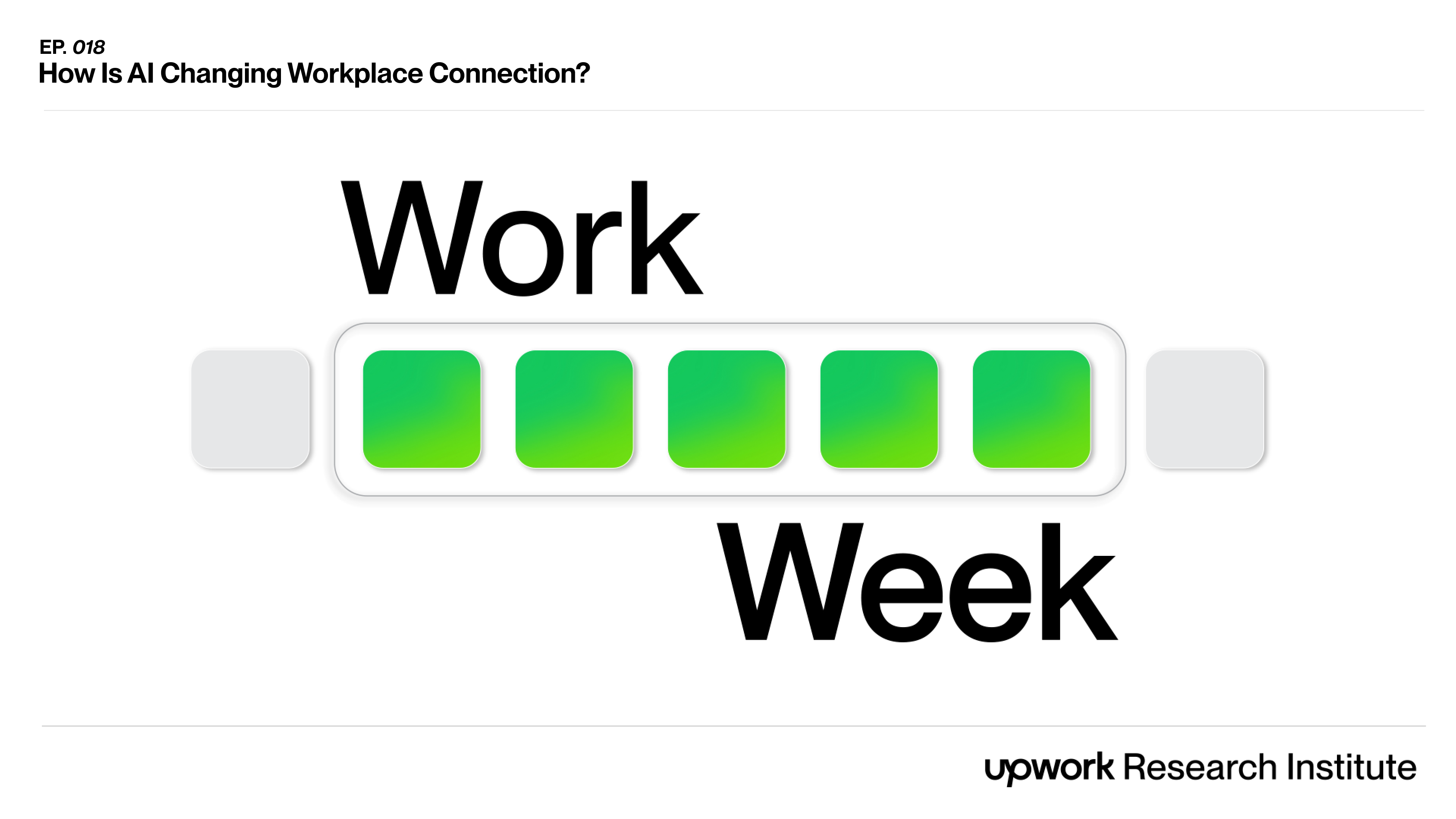


.png)

-p-500.jpg.png)

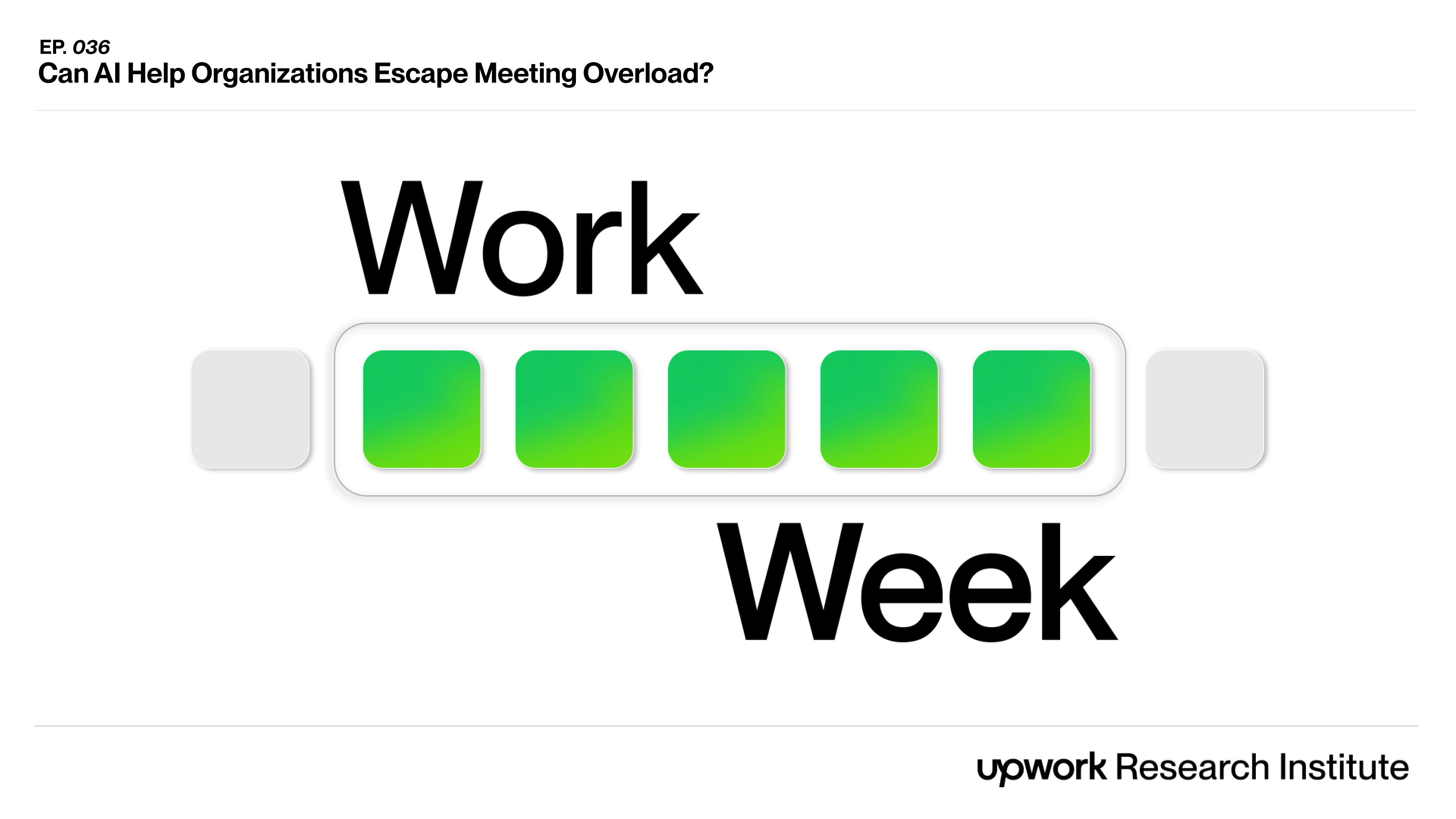

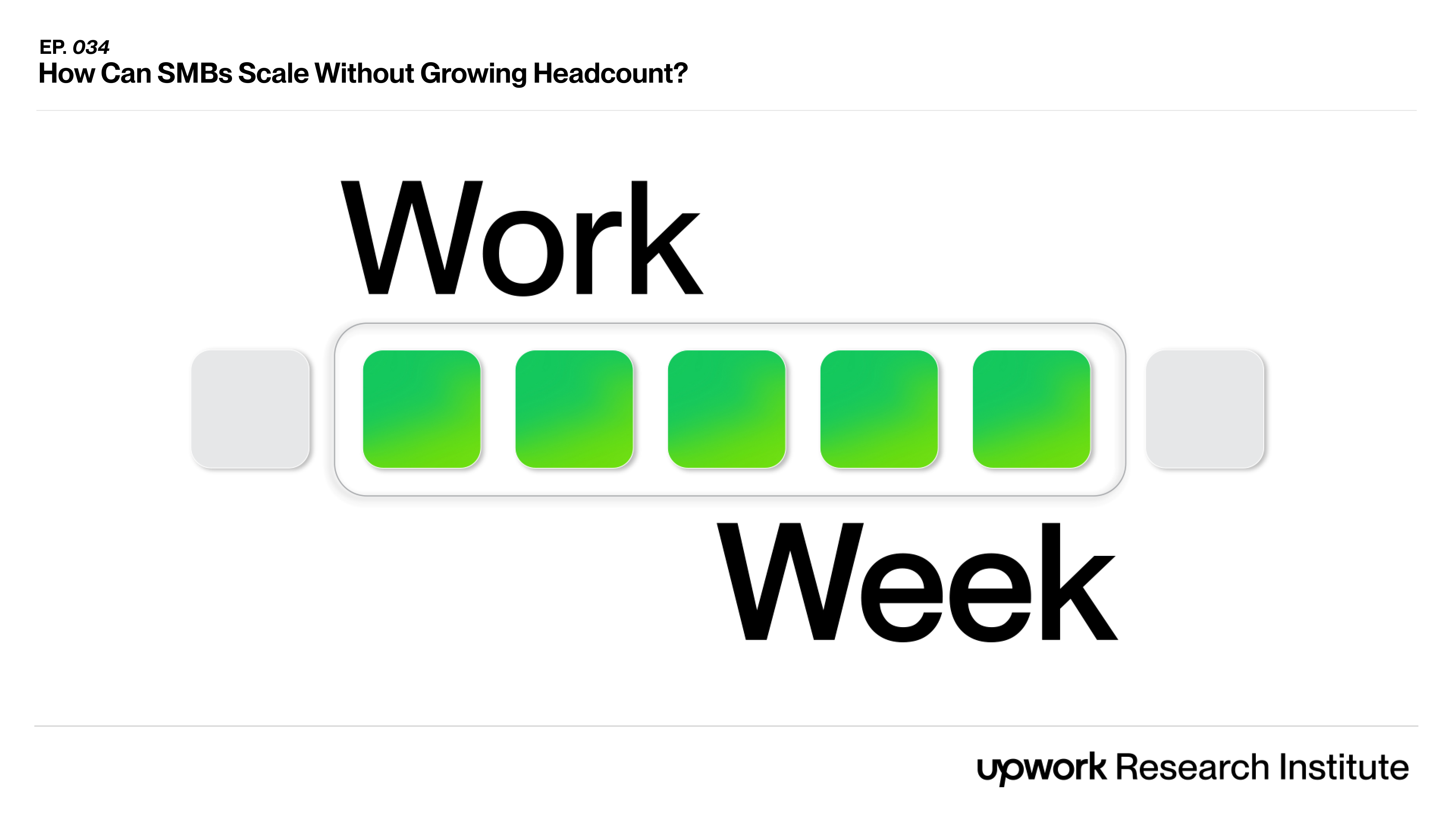
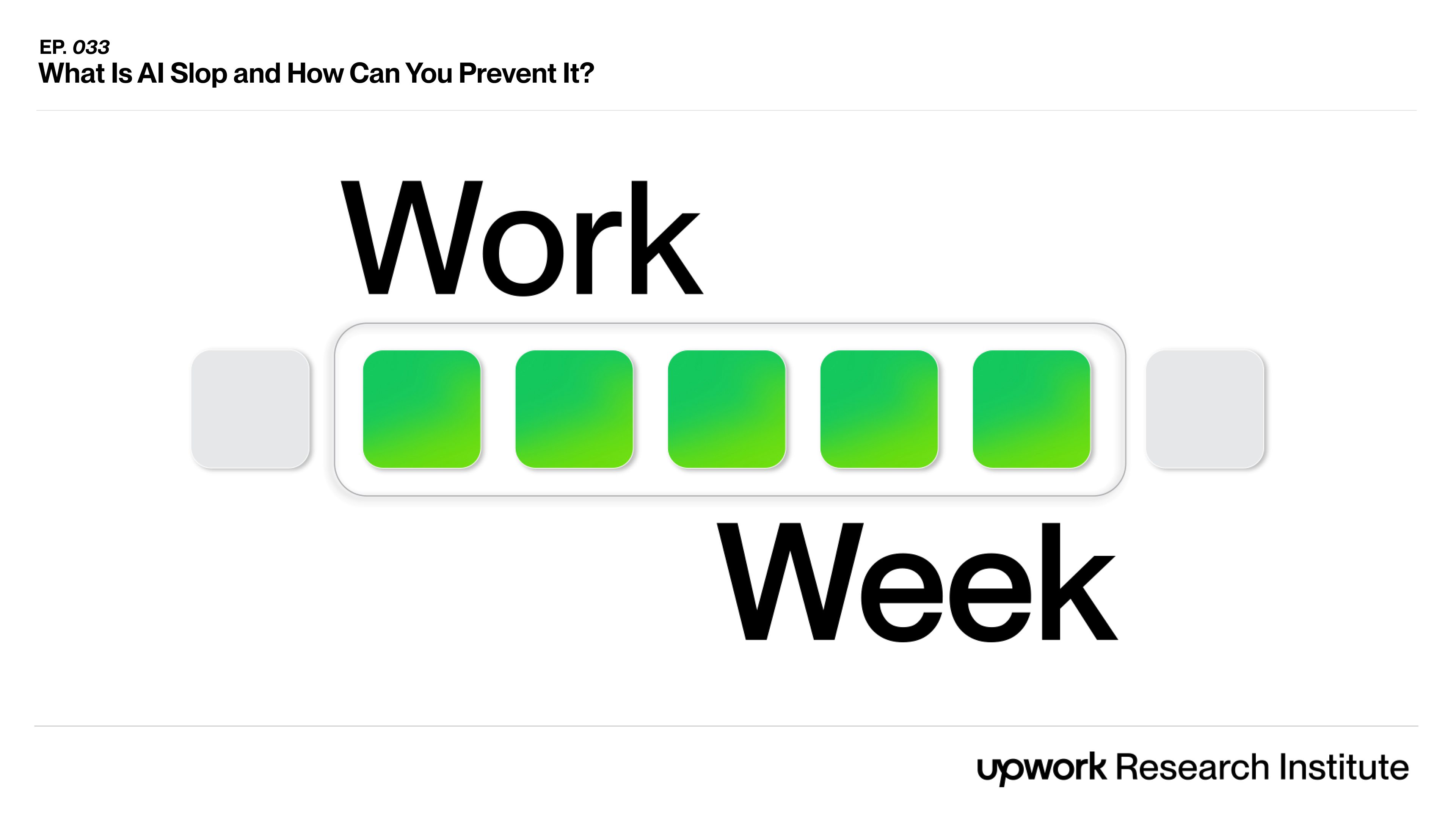
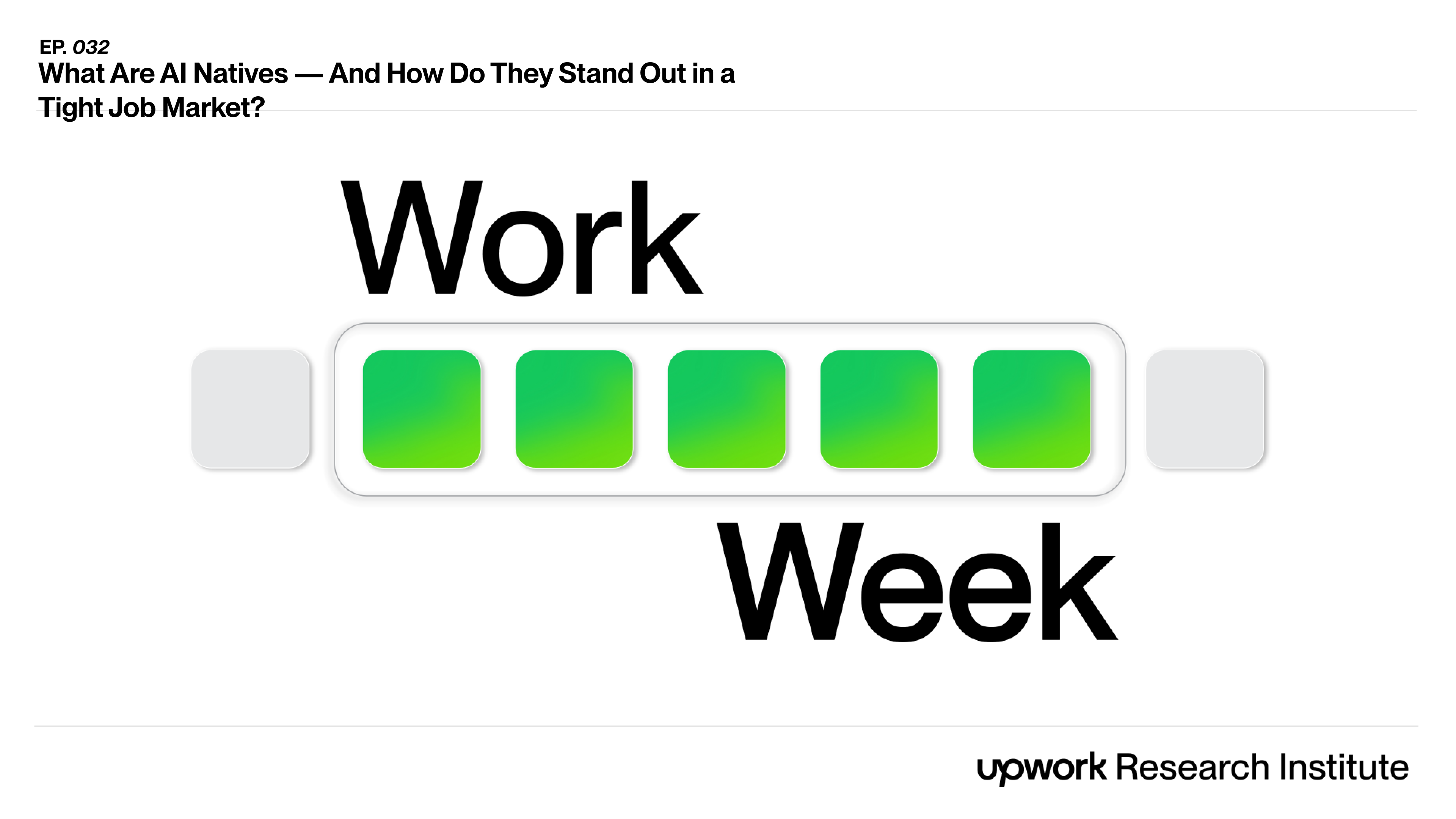
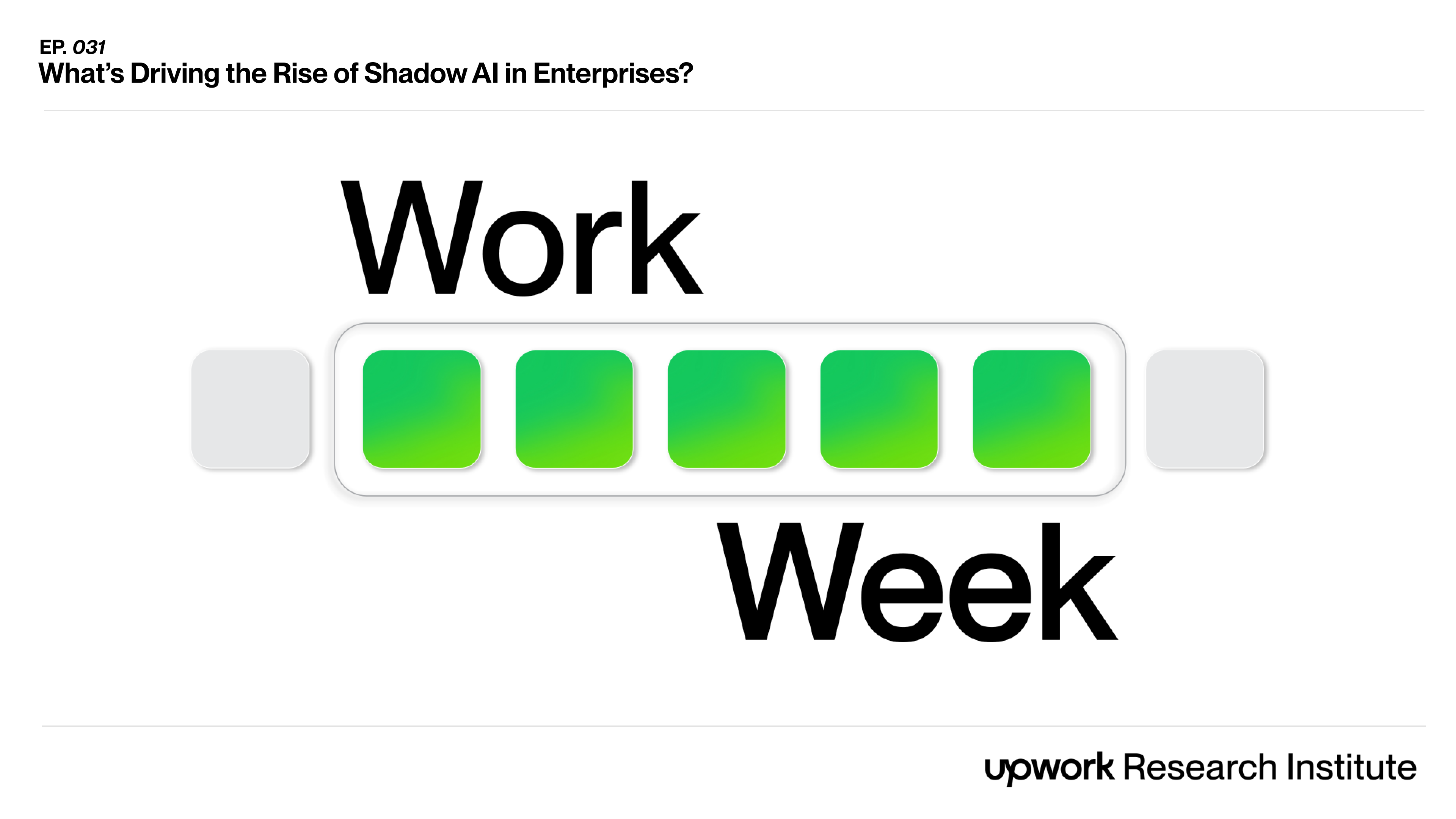
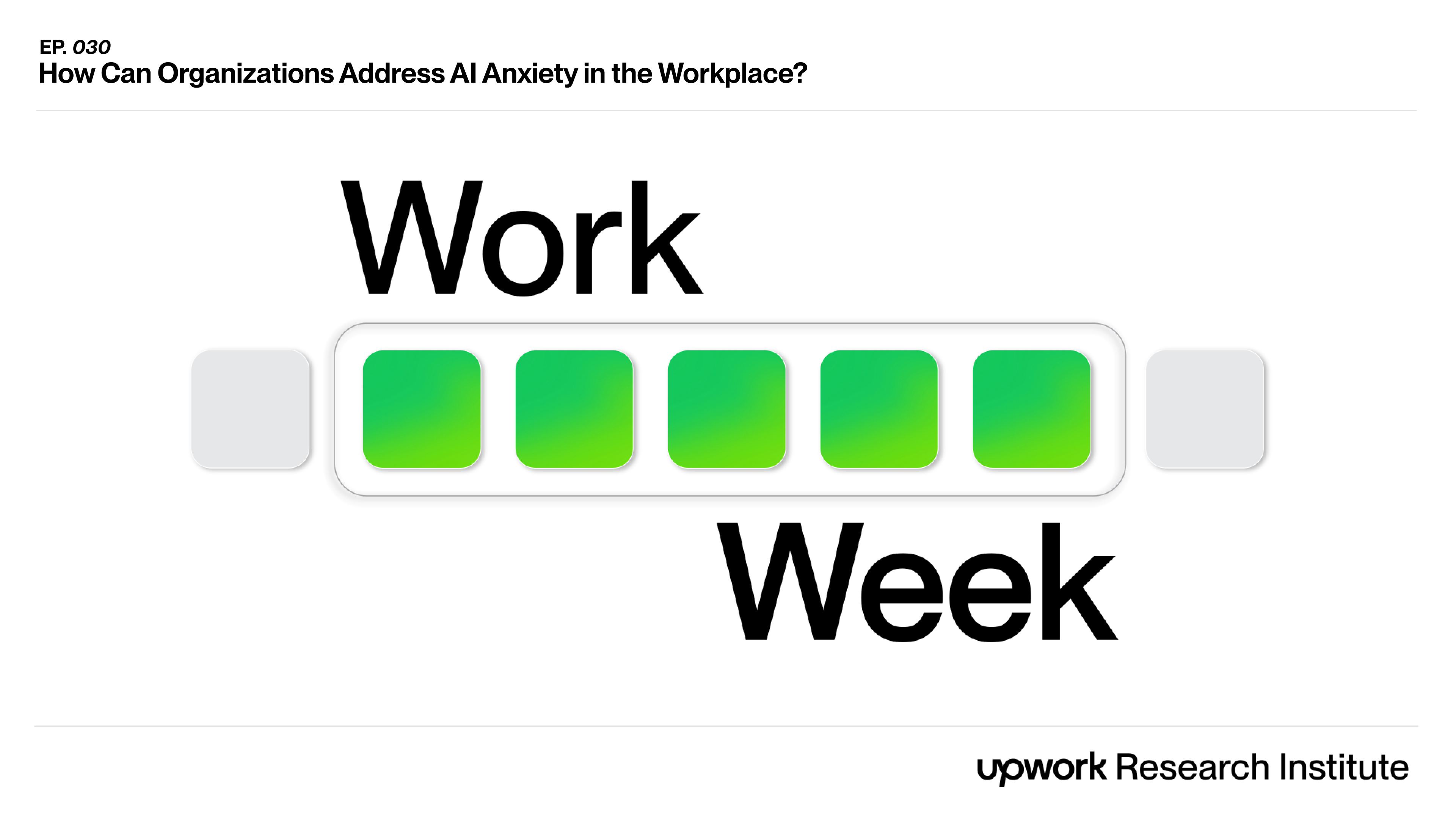
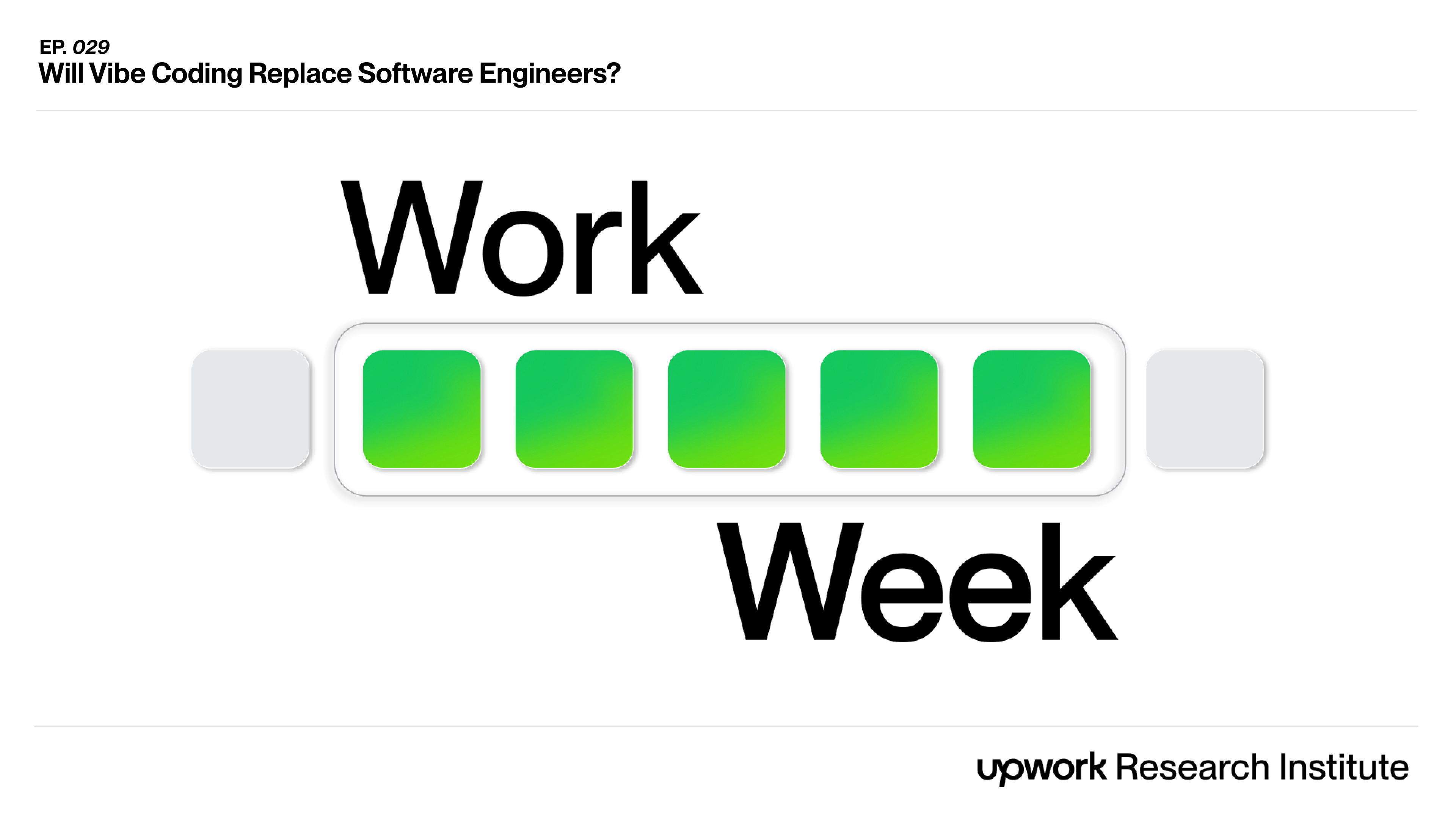
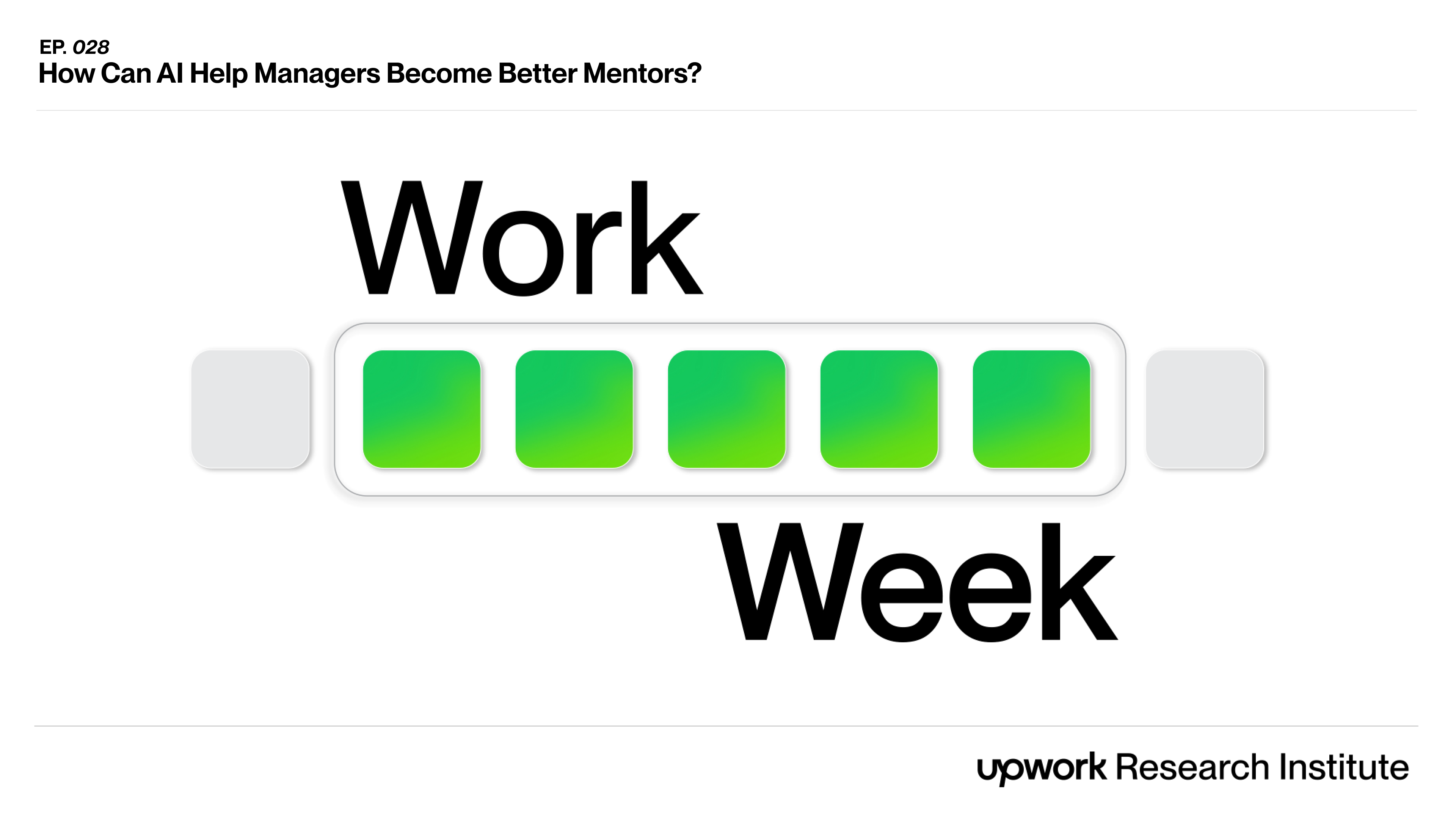

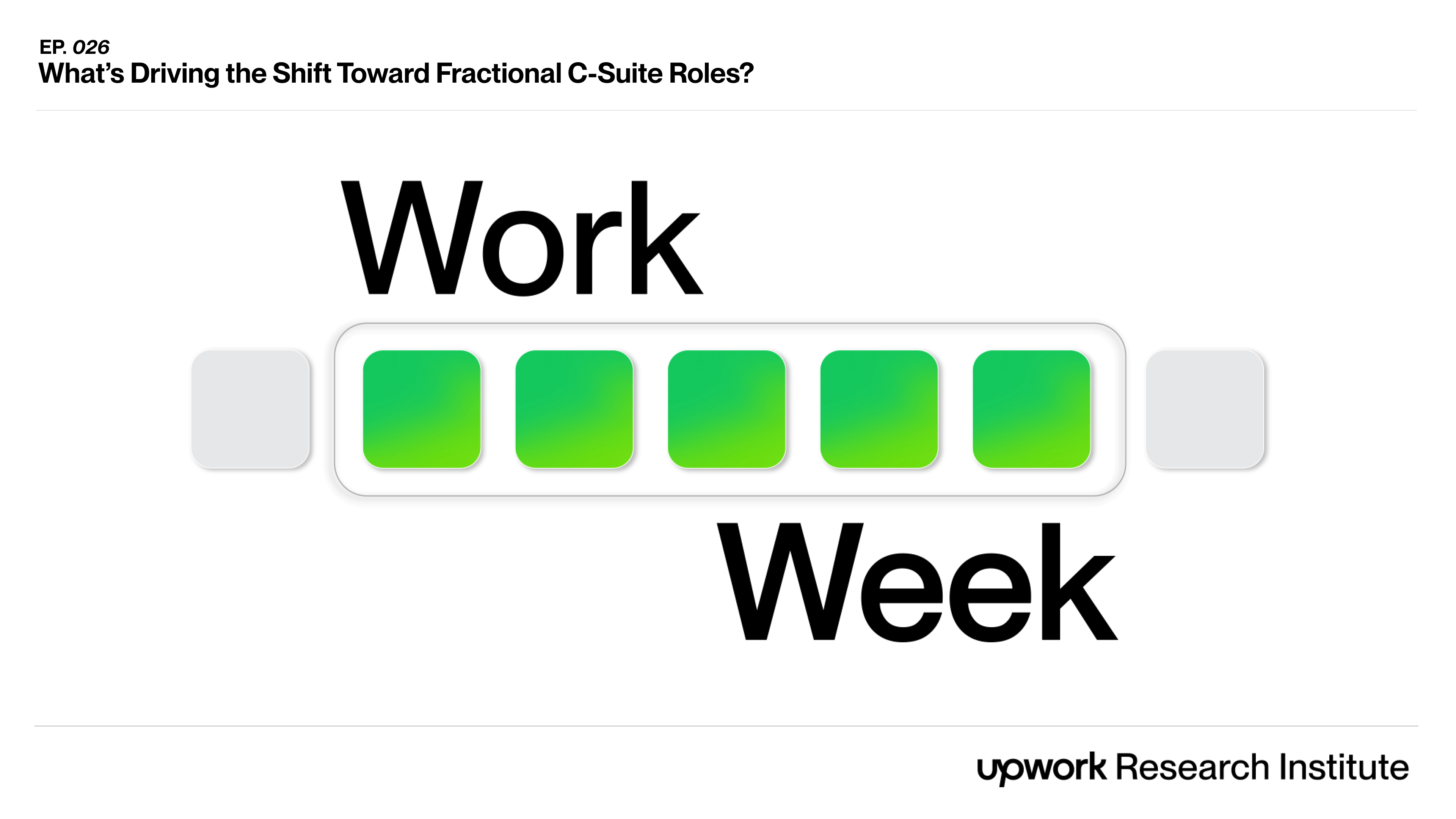
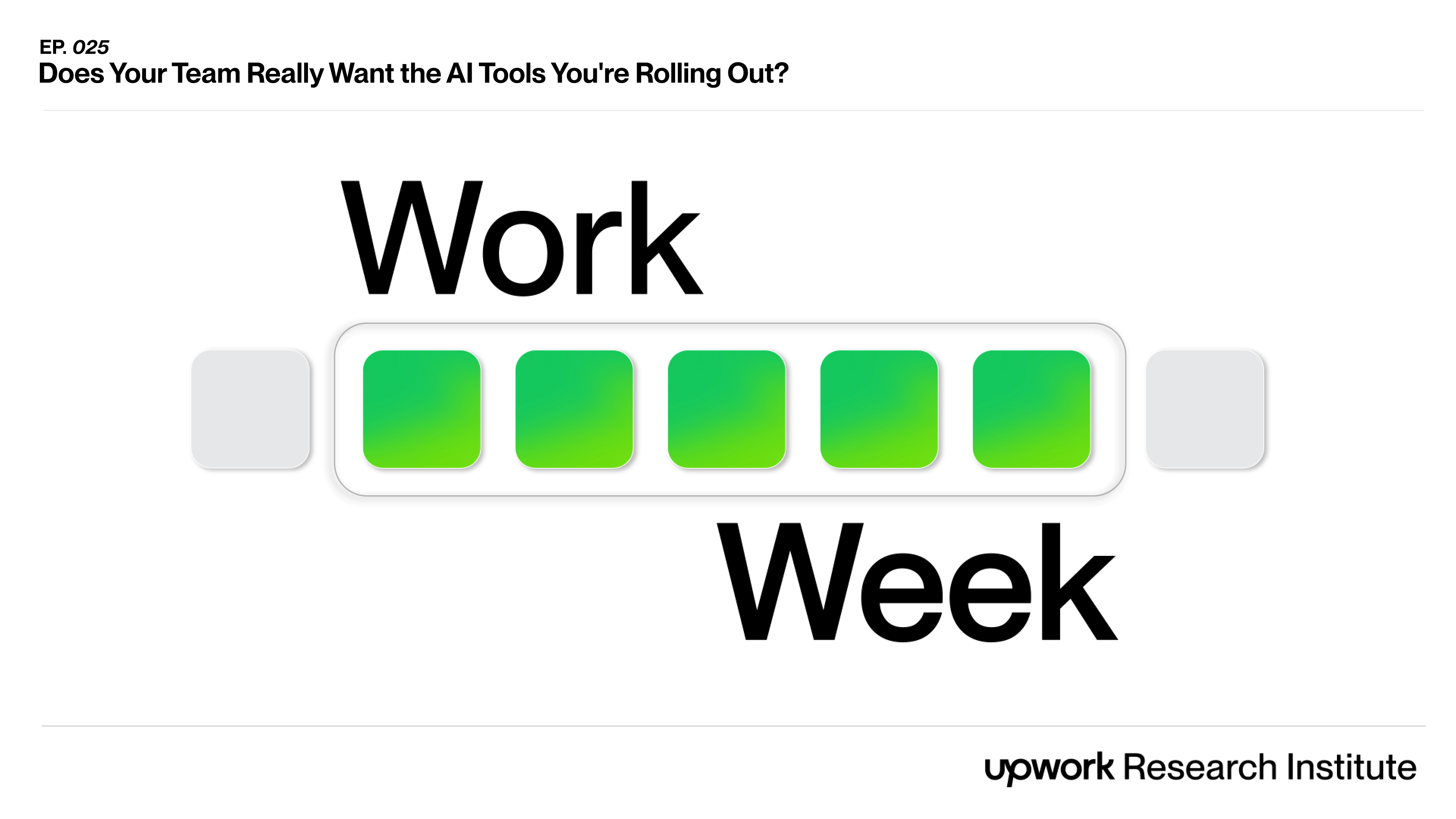
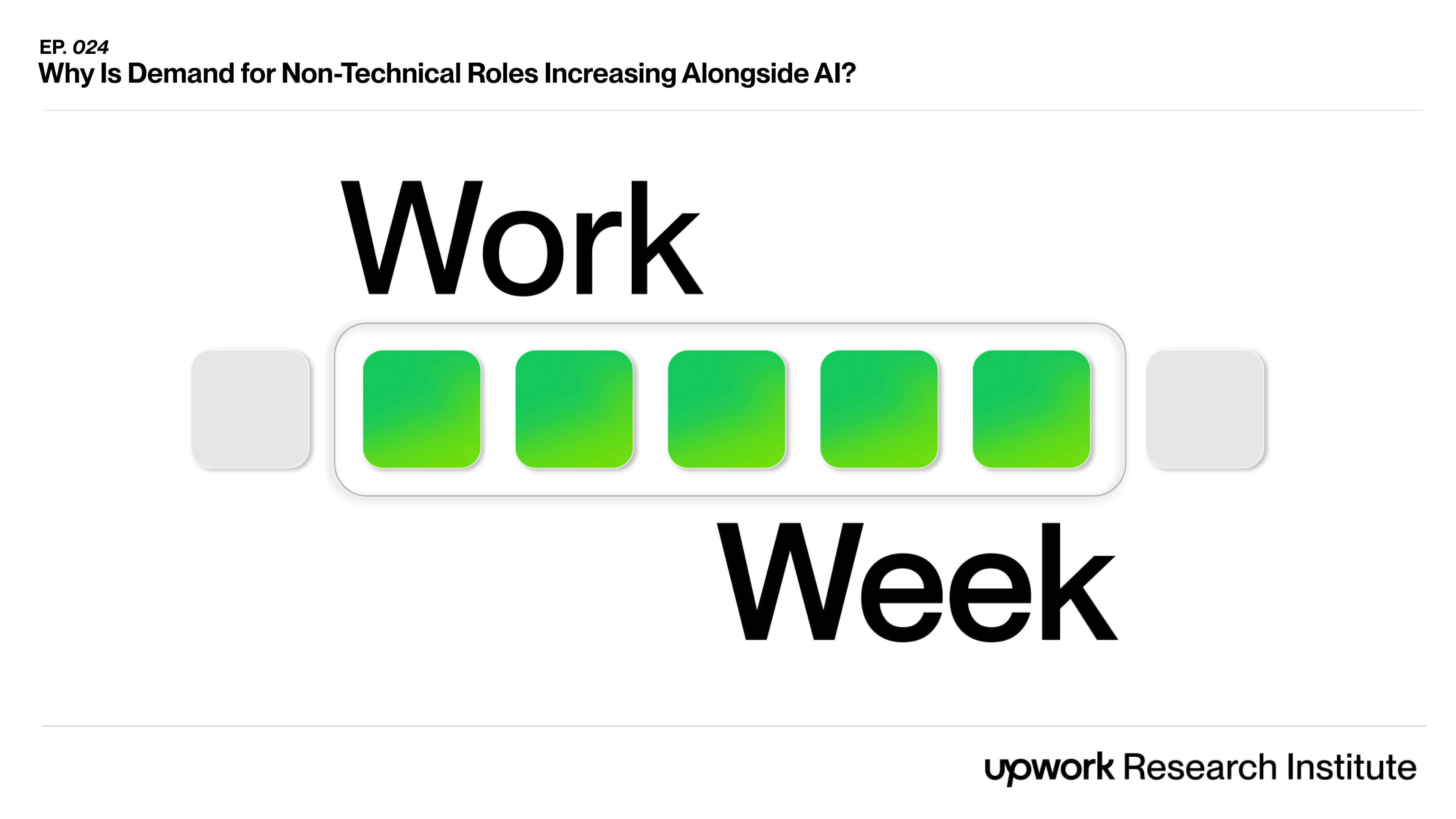
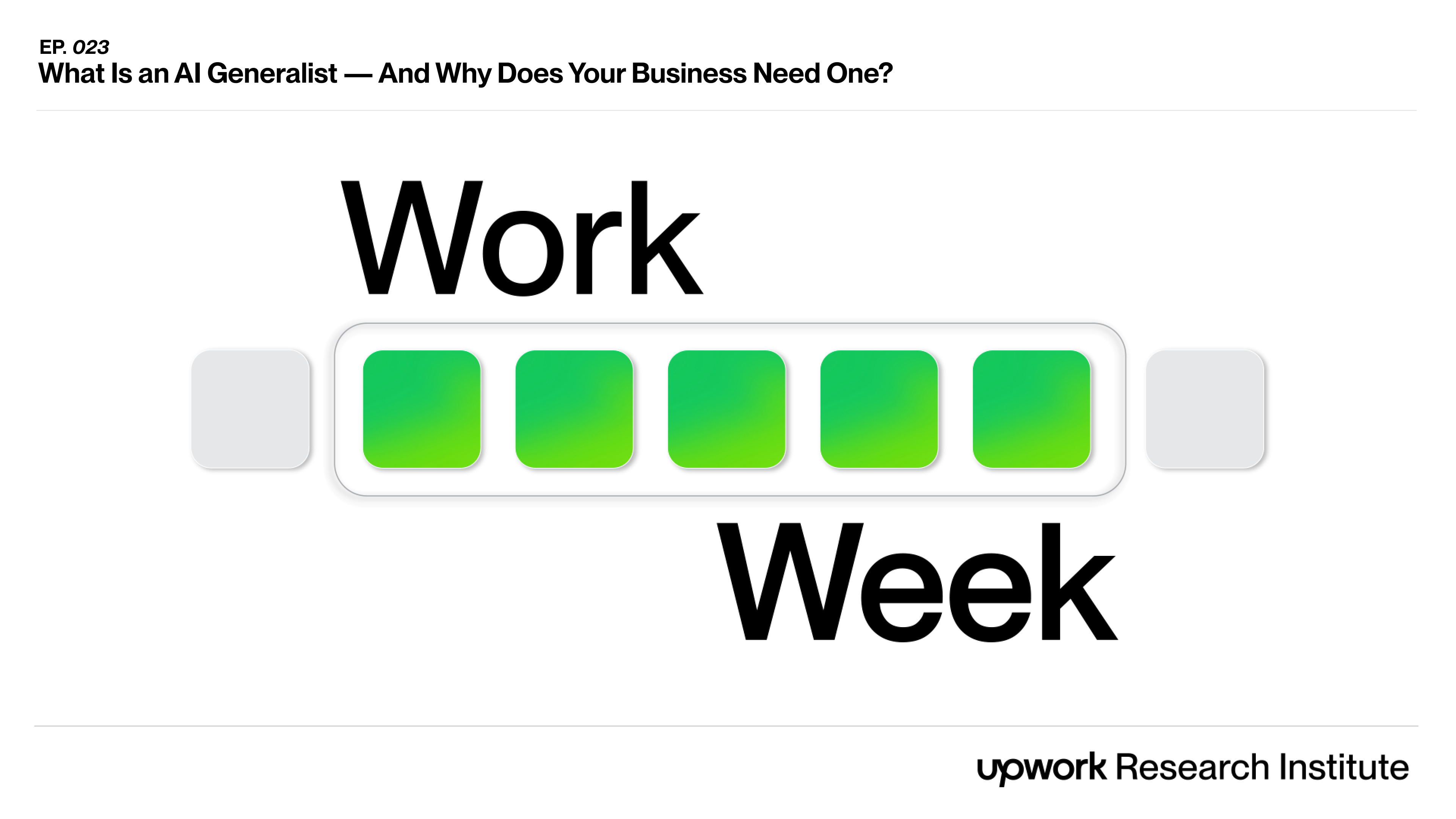
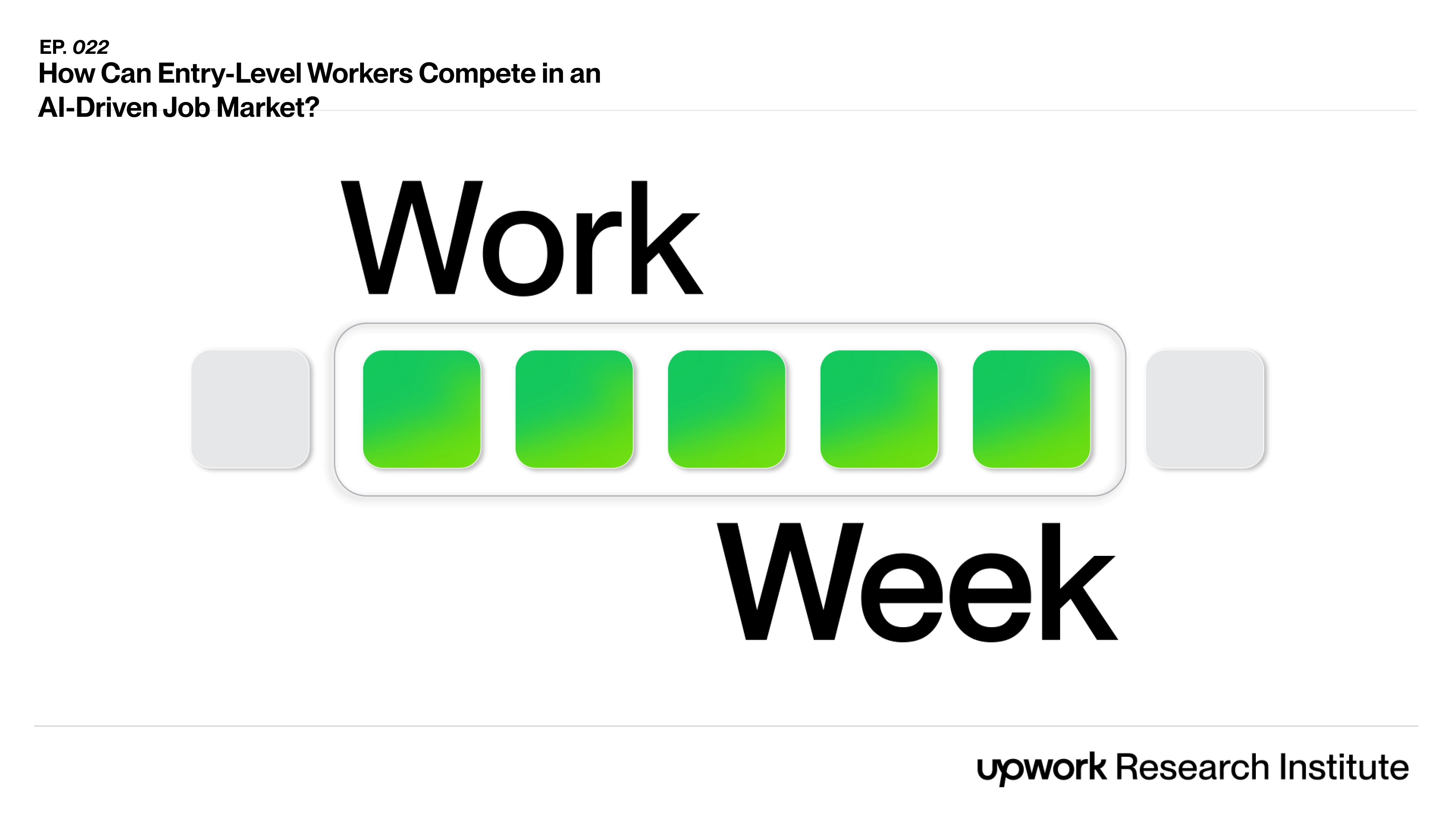

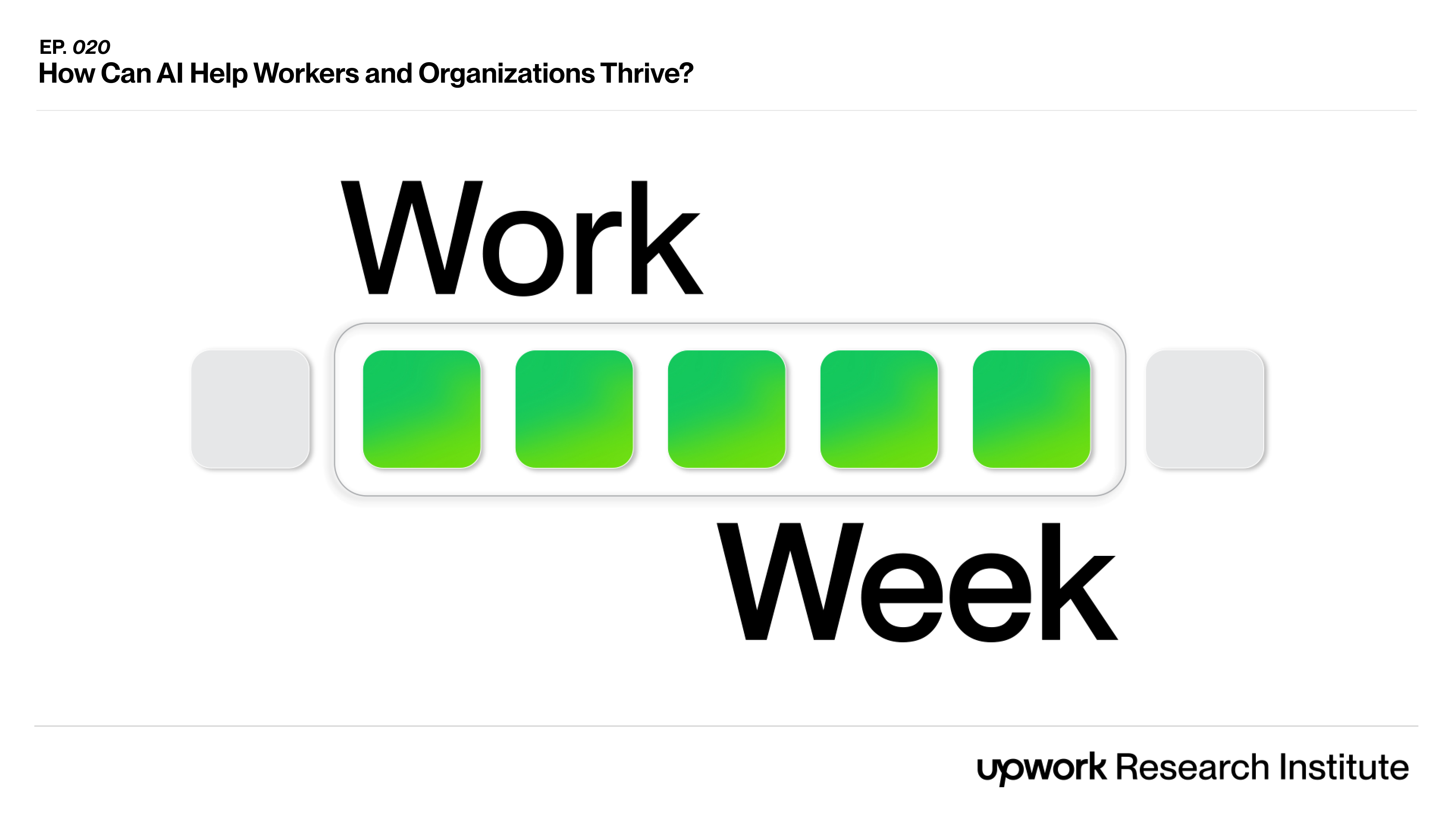
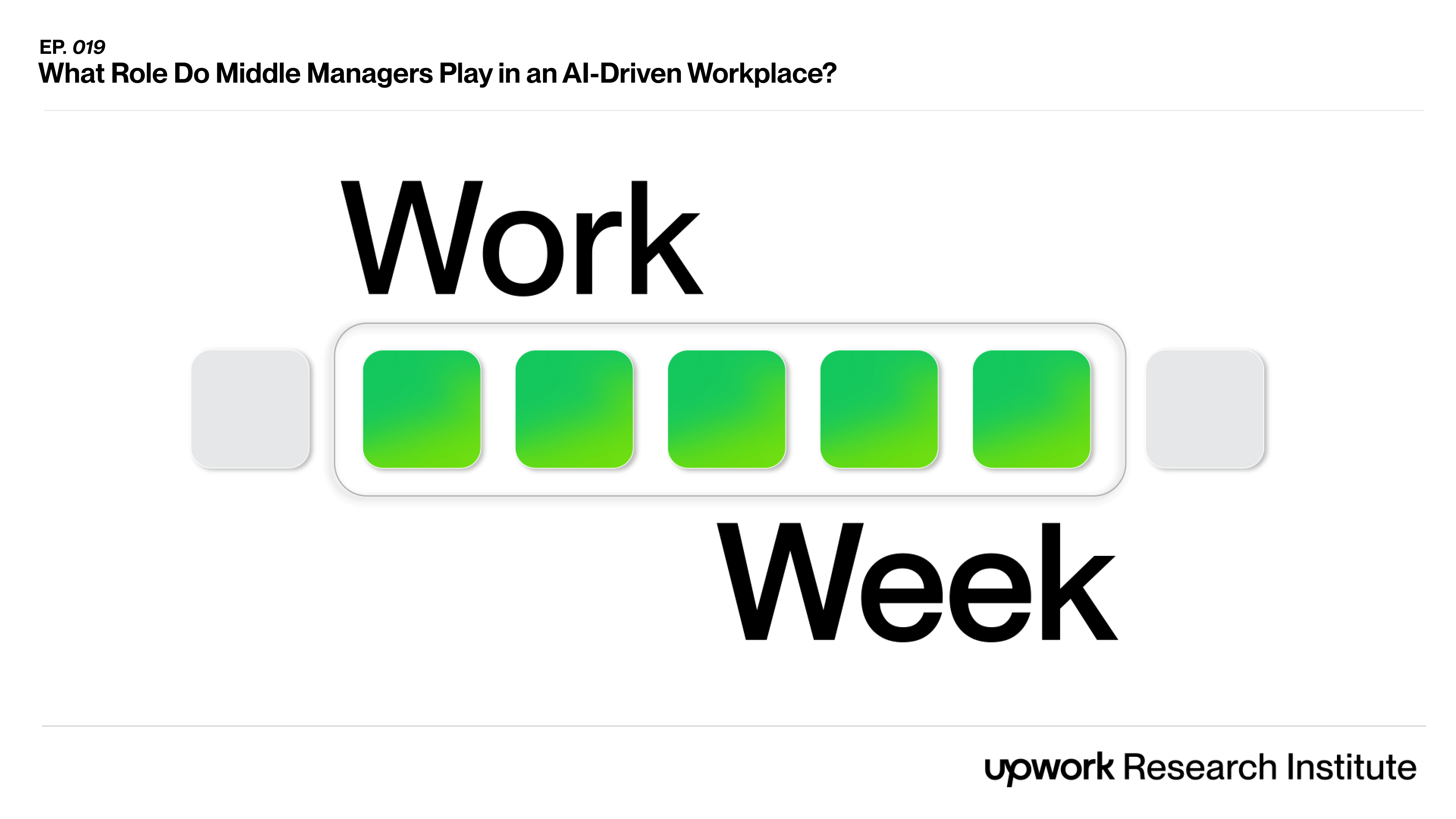

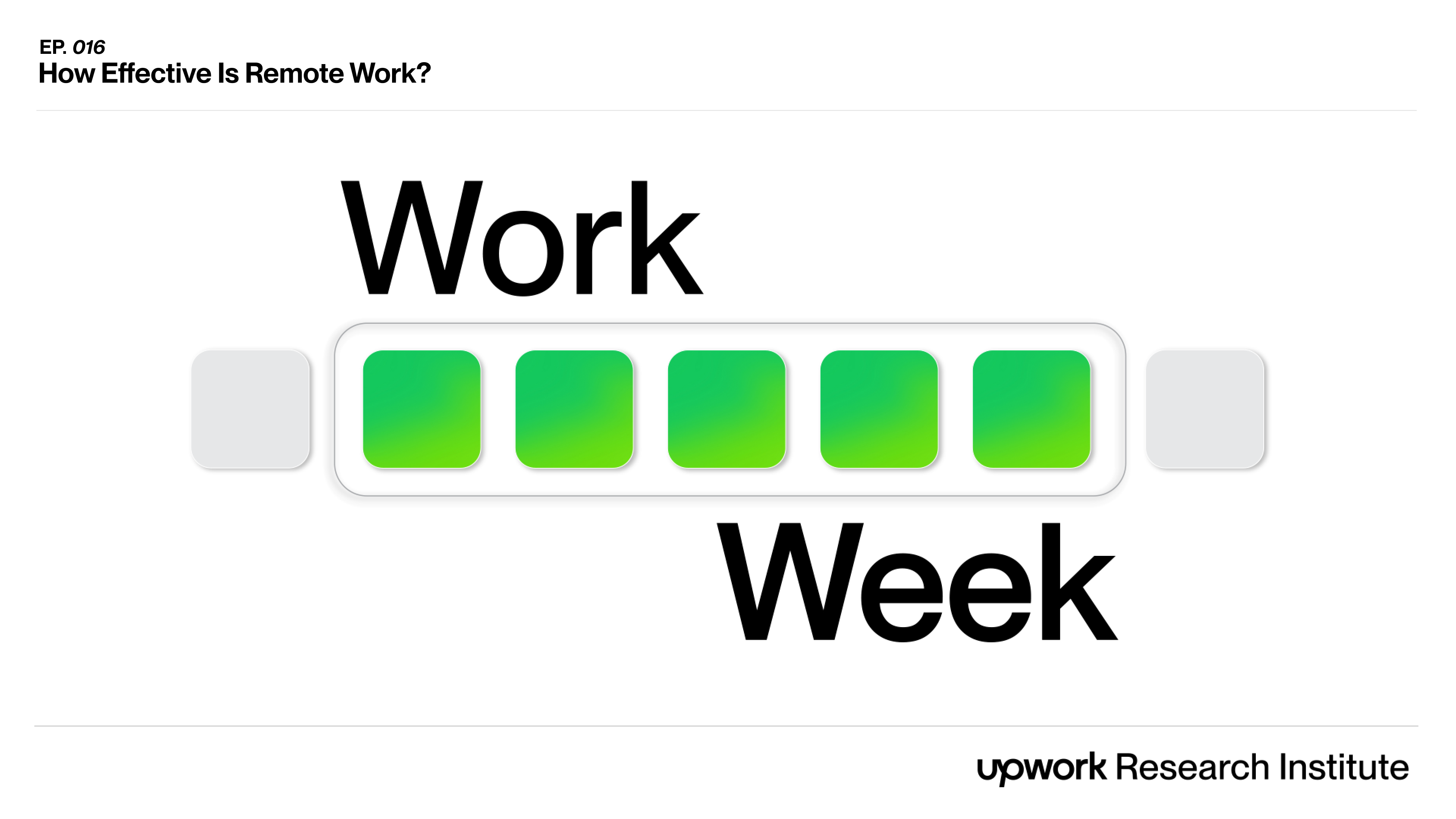
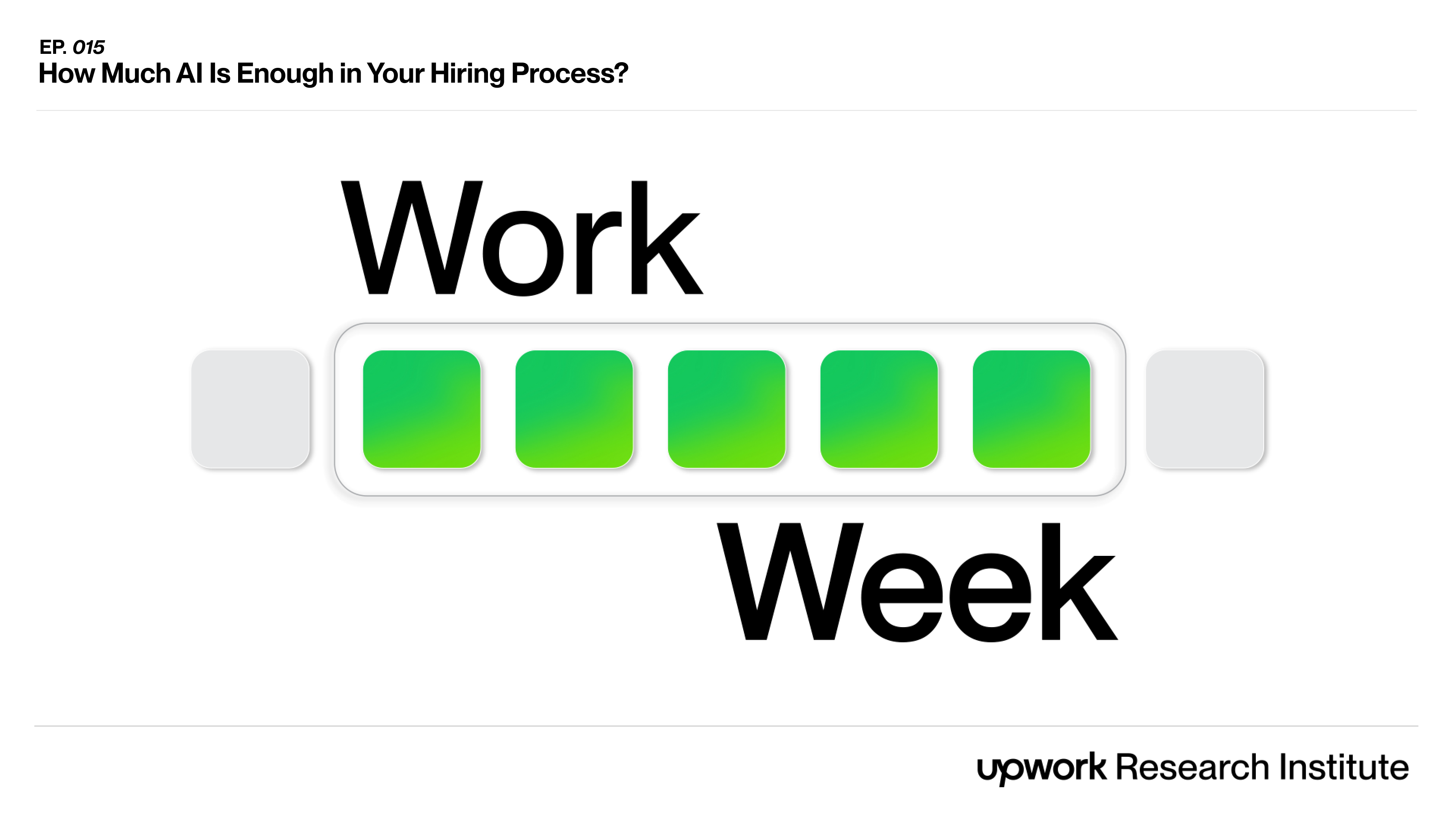

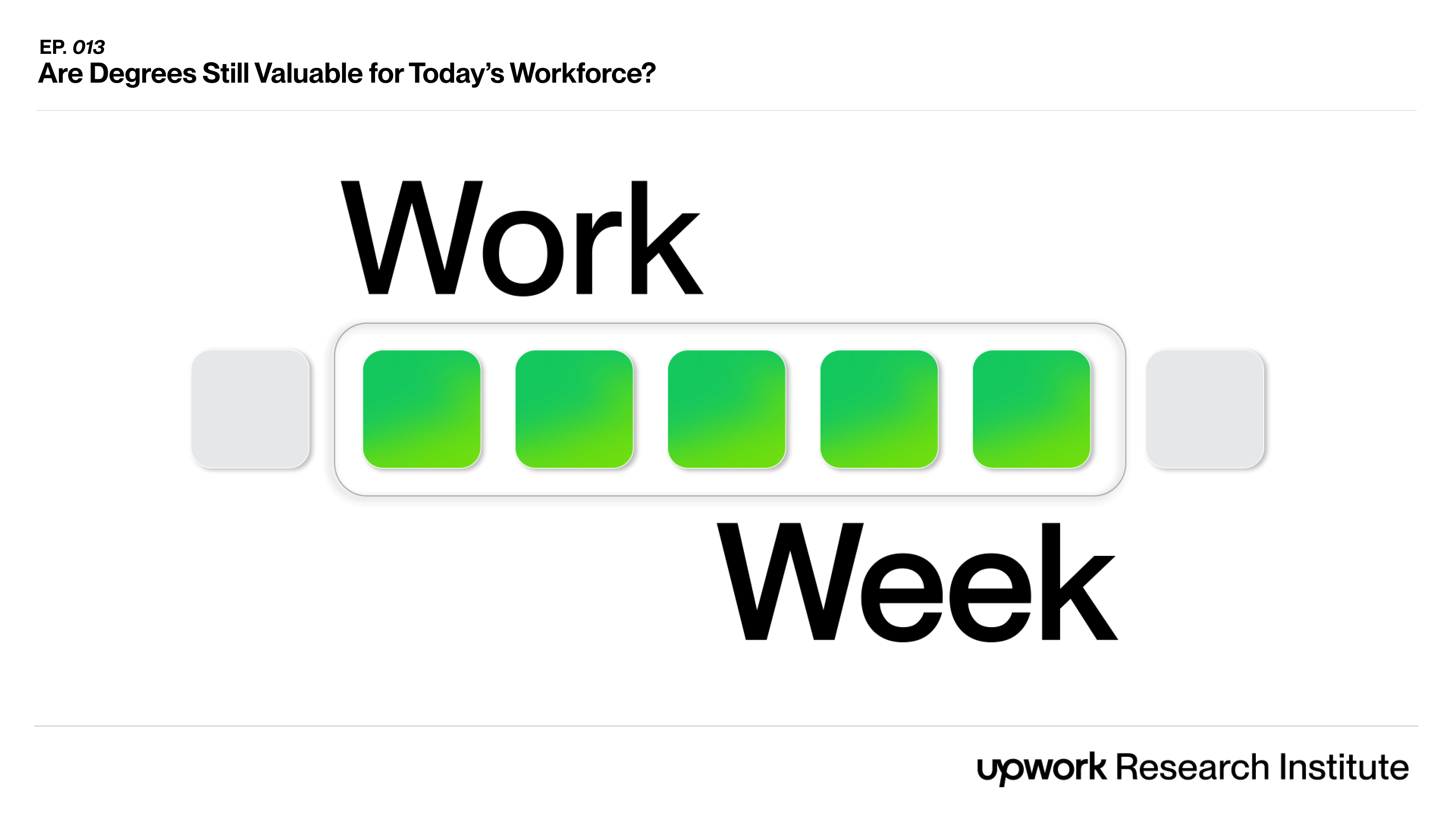
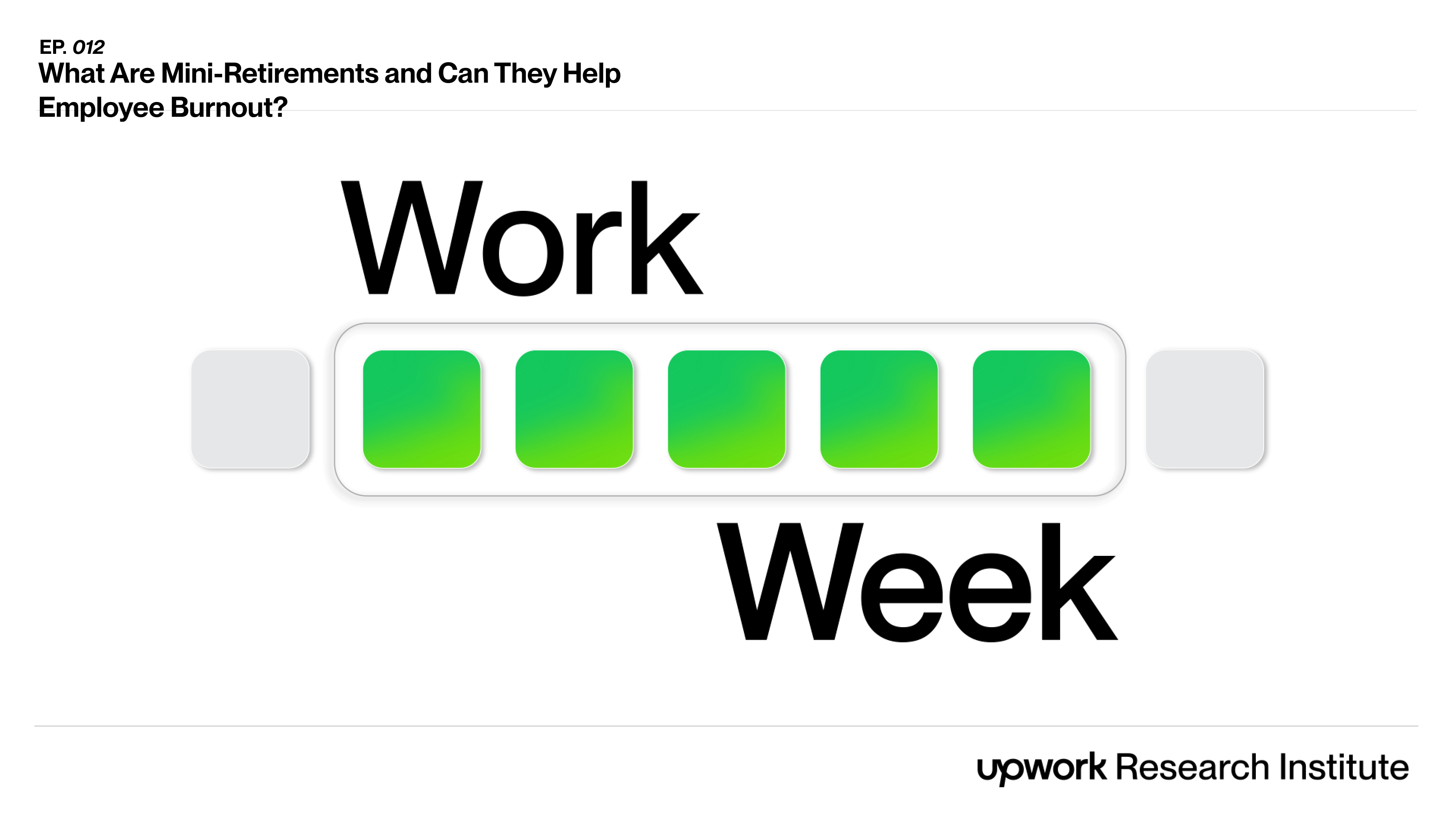
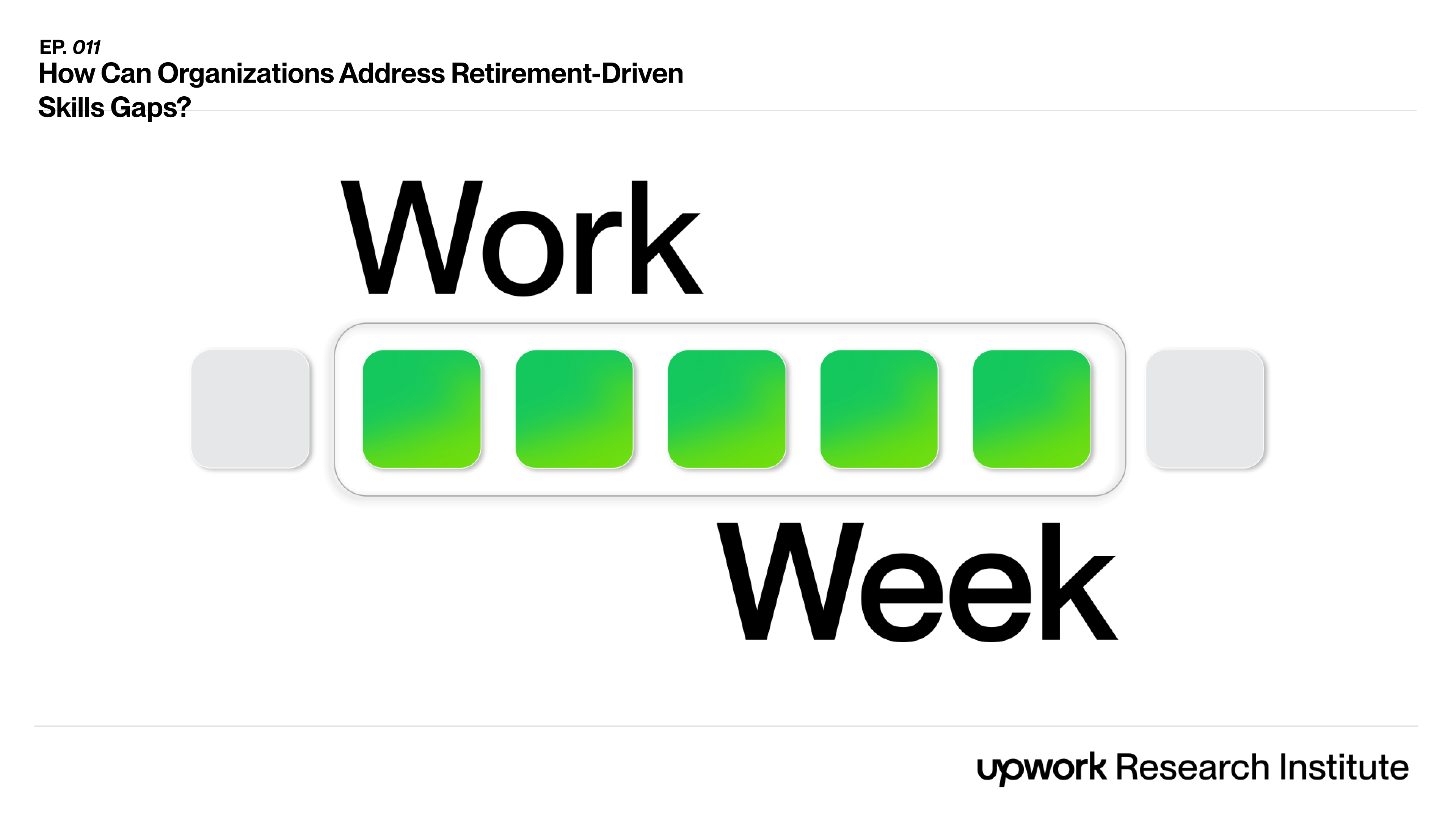
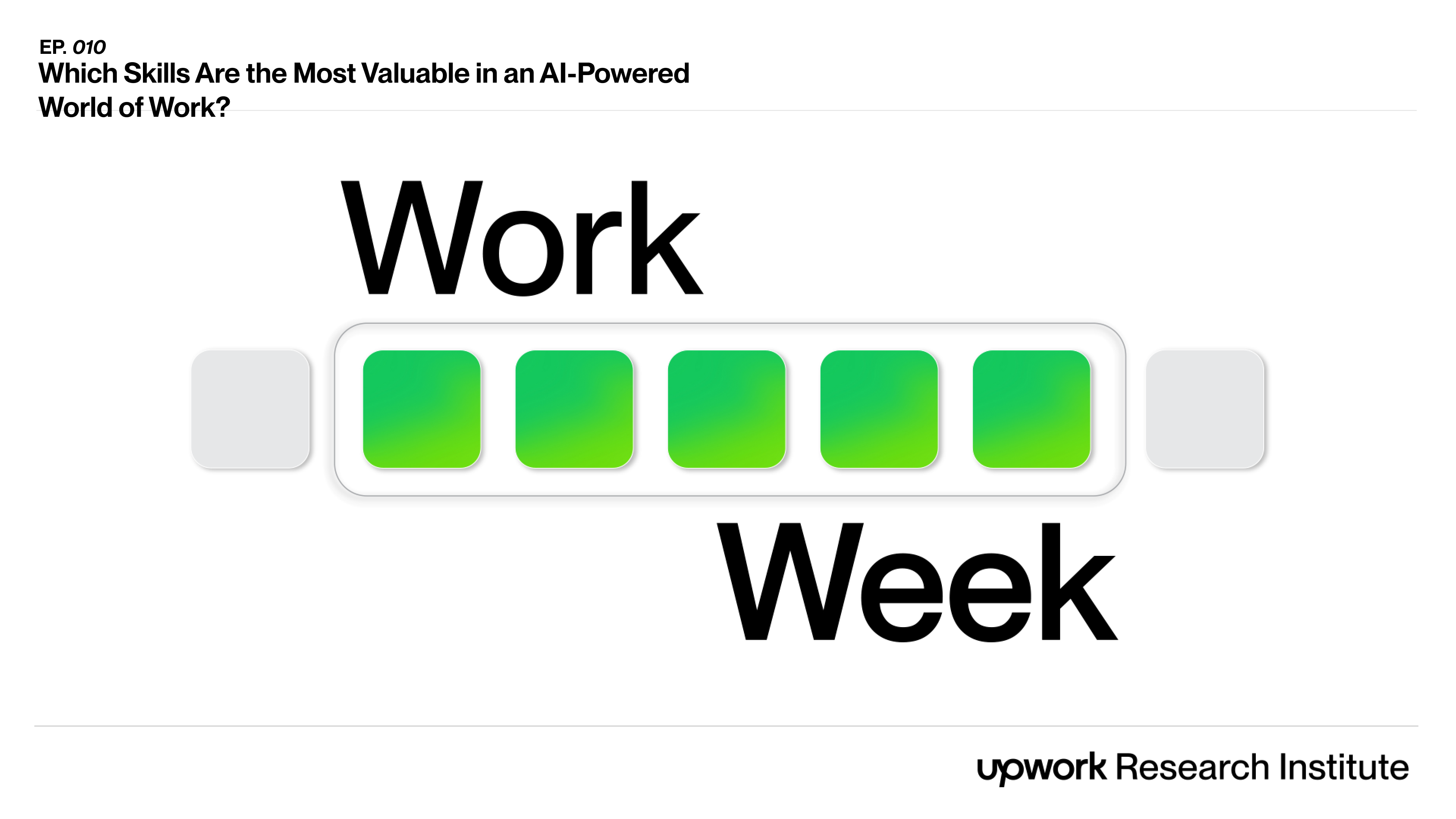
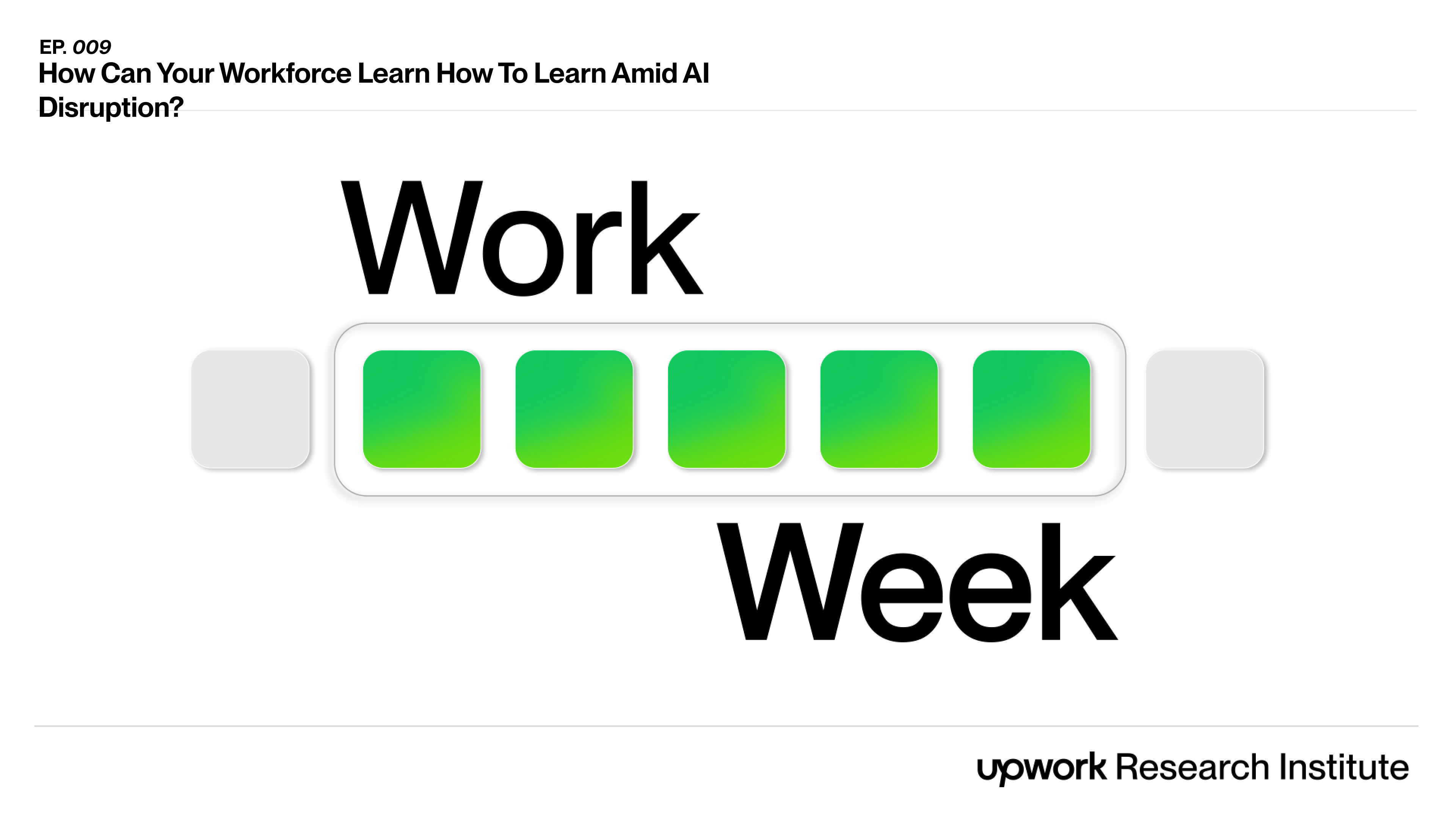
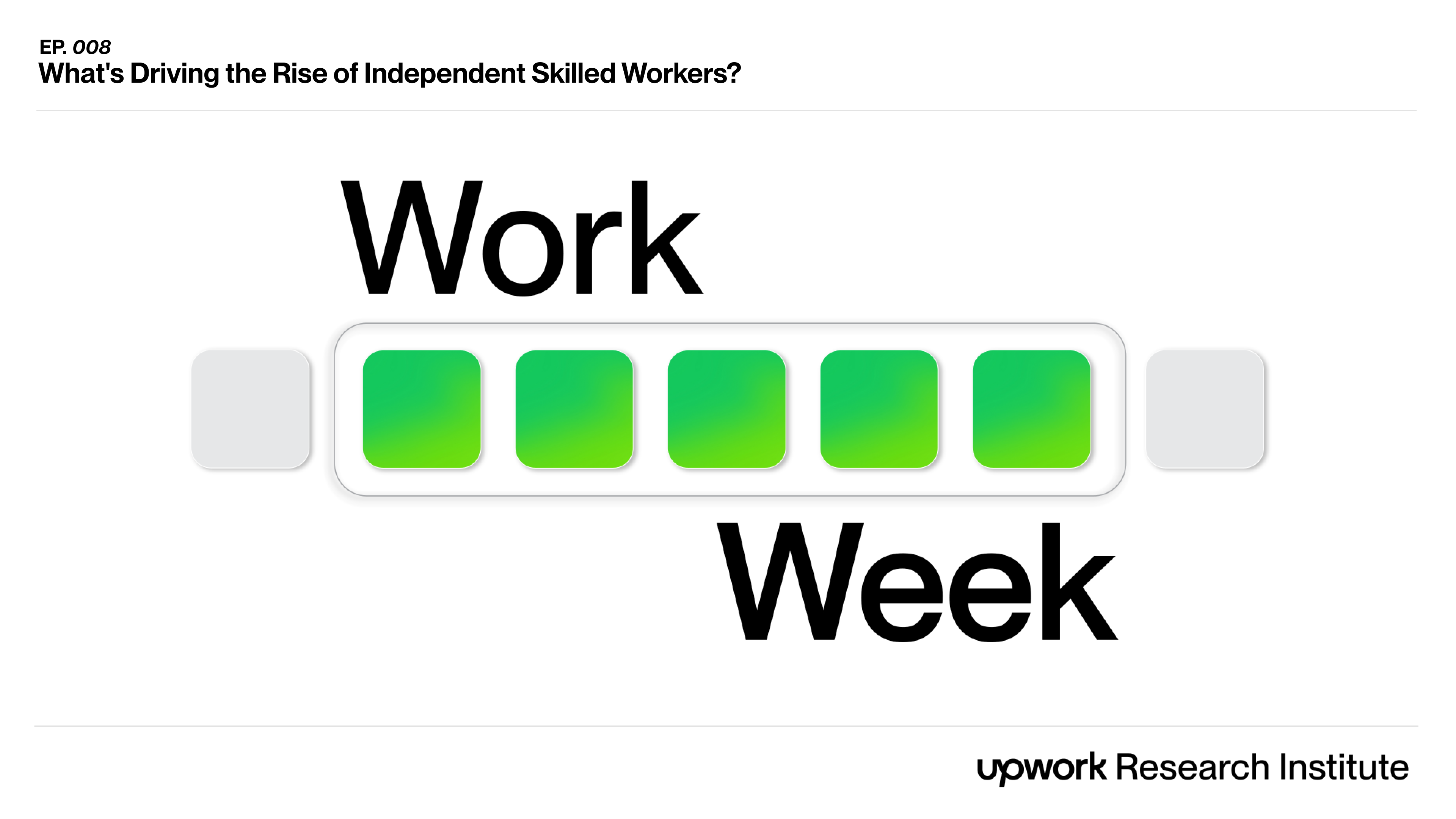
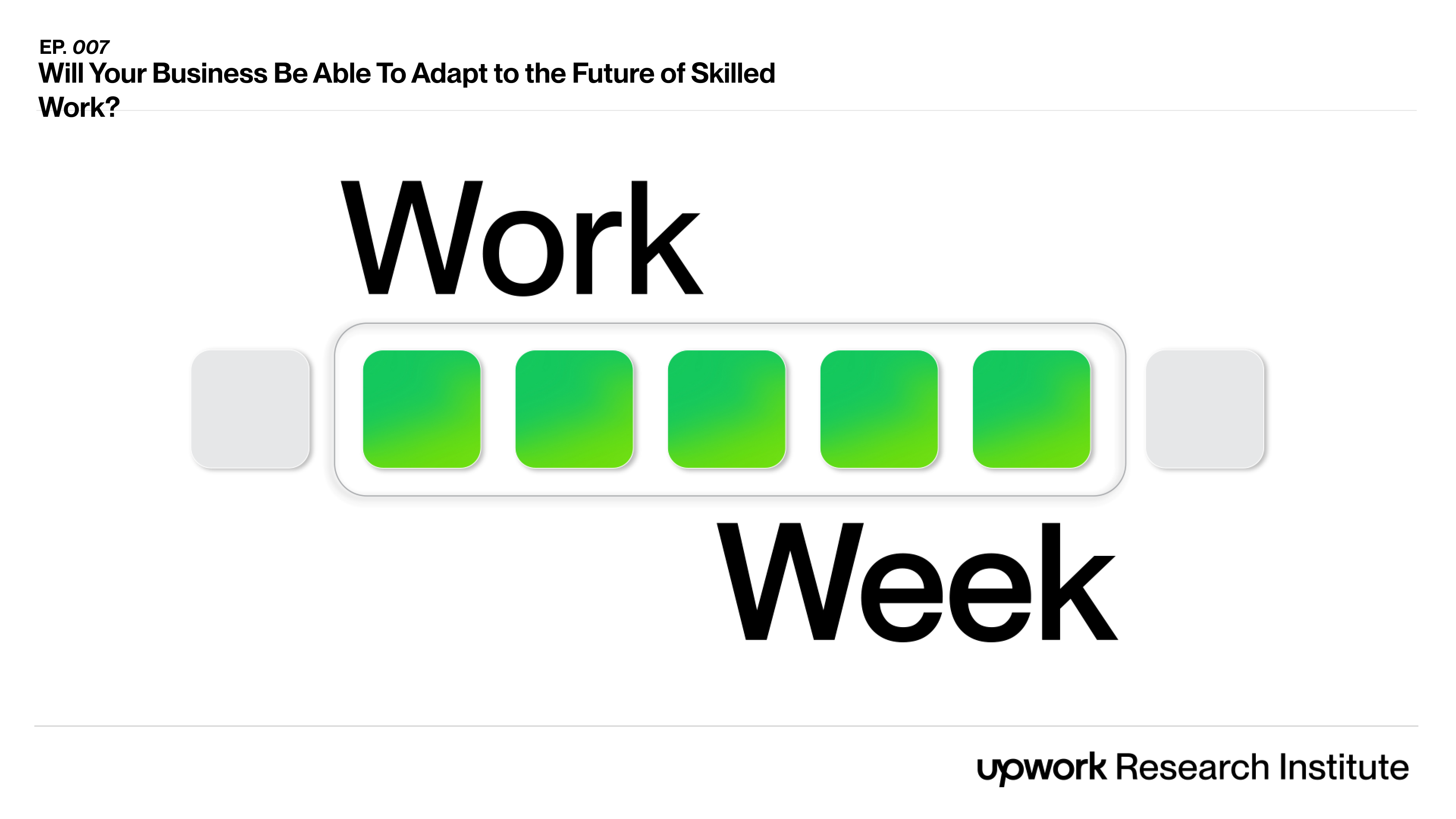
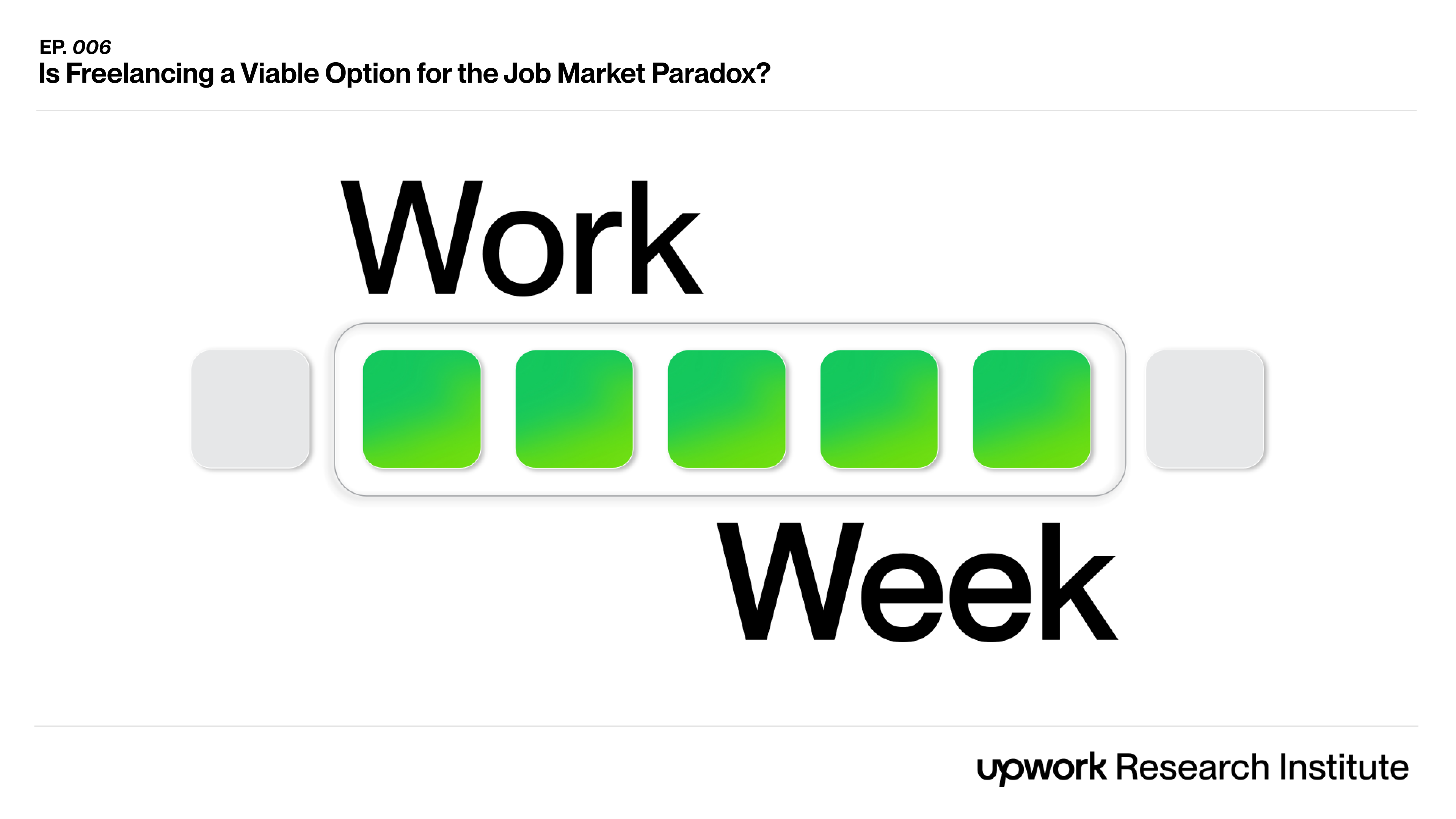
.png)
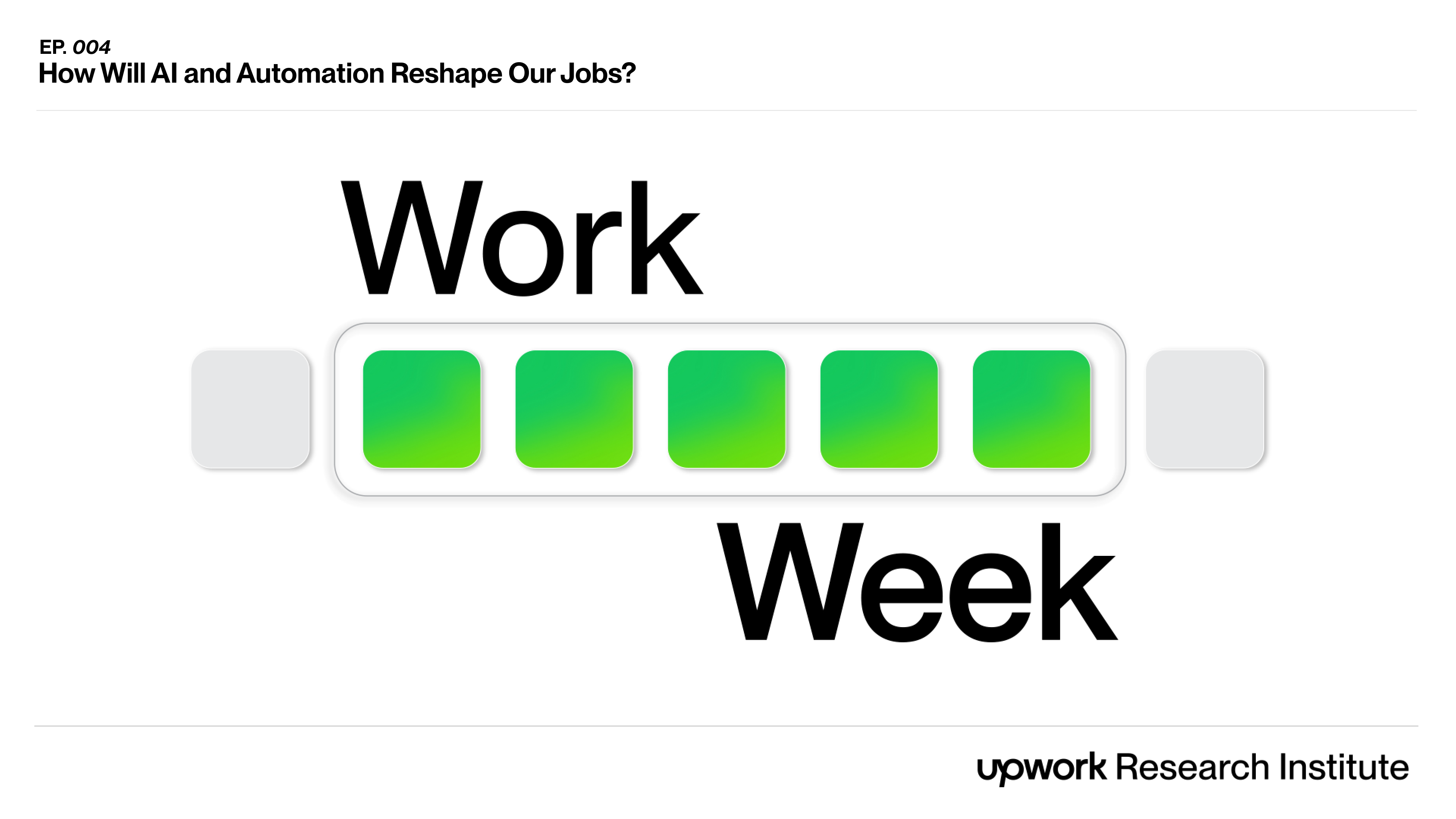

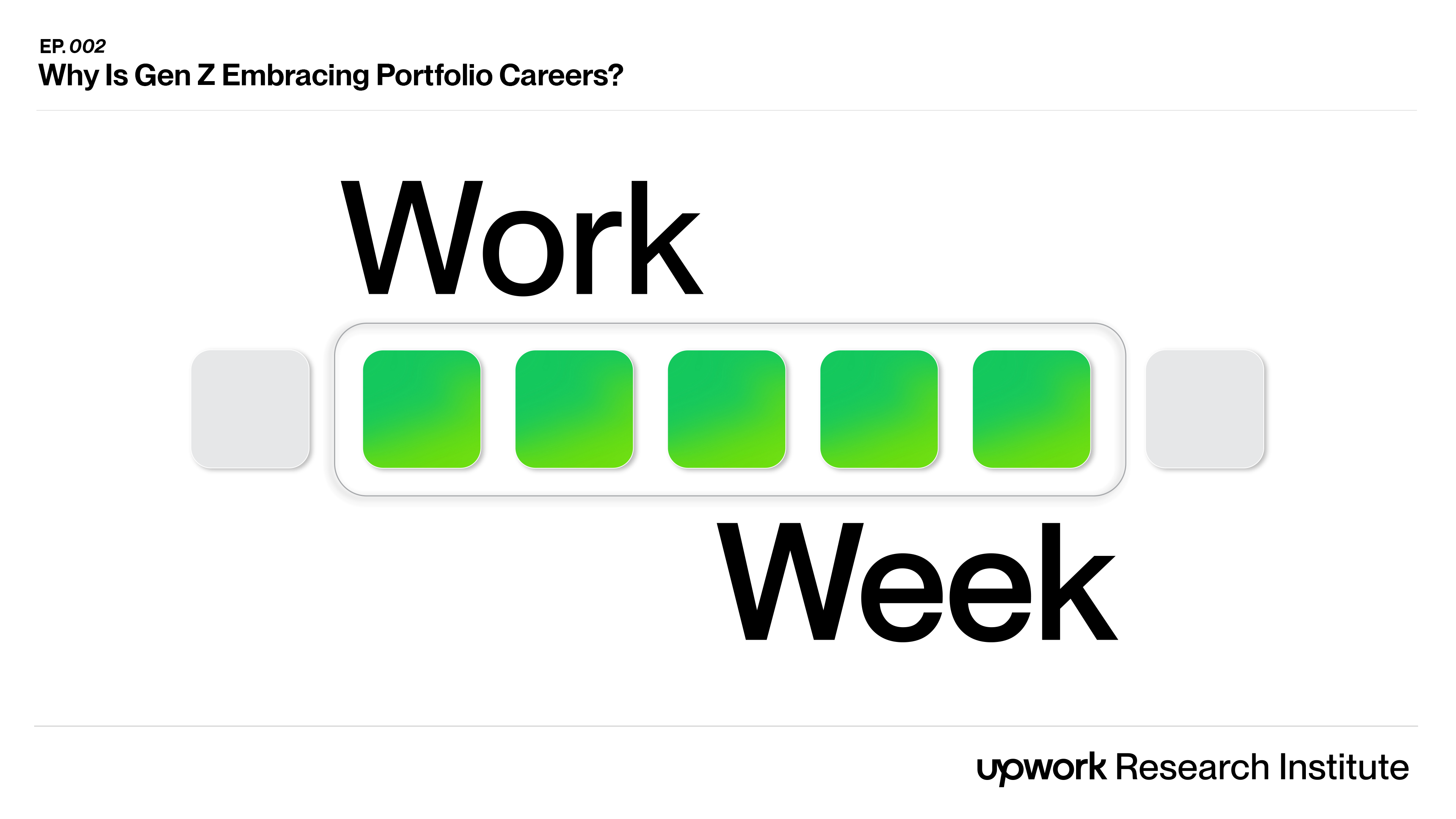
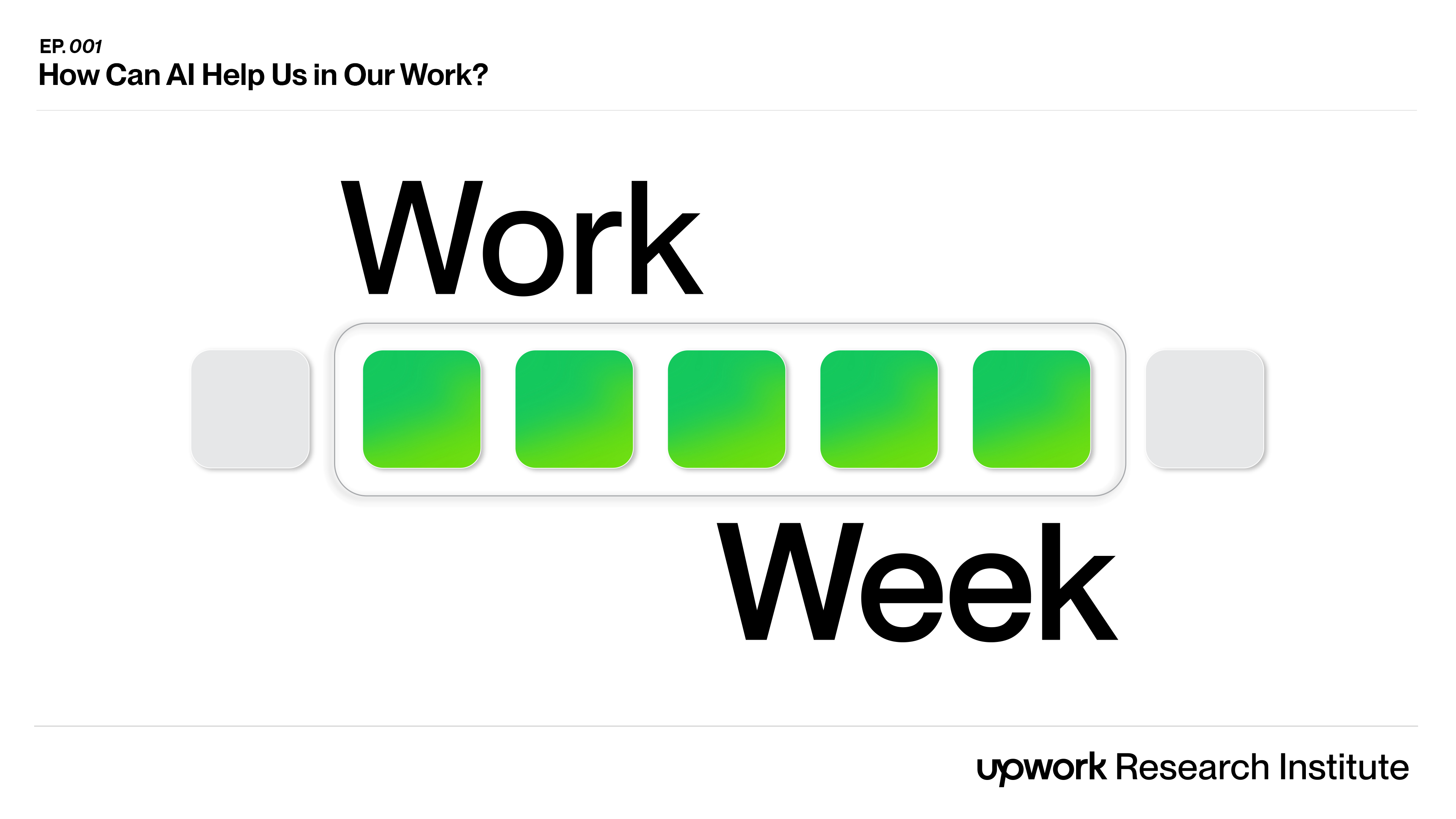
.jpg)